
Import - Export, Friperie
Selected Bales
DUO BOEKPRESENTATIE
04.05.2023, 19.00-22.00
Sam De Buysere, Miles Fischler, Axel Korban, Thor Salden, Stine Sampers & Joud Toamah
& TENTOONSTELLING
05.05-26.05.2023
Uitgenodigd door
Mekhitar Garabedian
We nodigen u graag uit voor de opening van Import - Export, Friperie: Selected Bales, een tentoonstelling ter gelegenheid van de lancering van het nieuwe boek Import - Export, Friperie van Mekhitar Garabedian.
Het boek is een fotografisch antwoord op de gelijknamige eenjarige, publieke sculptuur van Garabedian, die in 2022-23 in opdracht van Kunst in de Stad / Middelheimmuseum, voor het Public Figure initiatief in het Antwerpse Stadspark, gemaakt werd. Import - Export, Friperie traceert de esthetische, talige en affectieve economieën die het gevolg zijn van een persoonlijk verhaal van ontheemding en samenhorigheid. In lijn met het dialogische karakter van het project vroeg Garabedian voor de tentoonstelling in BOEKS aan kunstenaars Sam De Buysere, Miles Fischler, Axel Korban, Thor Salden, Stine Sampers en Joud Toamah om in gesprek te gaan met zijn sculptuur.
"De zes kunstenaars die ik uitnodigde om te reageren op Import - Export, Friperie, namen één voor één de sculptuur op in hun eigen artistieke wereld, in hun eigen artistieke taal. Door te verschuiven, toe te voegen, weg te halen en het werk te veranderen, creëerden ze nieuwe verhalen en perspectieven.”
— Mekhitar Garabedian
Ter gelegenheid van de tentoonstelling werden hun visuele bijdrages gebundeld in een kleine publicatie die tijdens de opening uitgedeeld wordt. Er zal ook Arak geserveerd worden tijdens de opening, een traditionele drank uit het Midden-Oosten. Van harte welkom!
Met dank aan Liene Aerts (BOEKS), Katrien Vuylsteke Vanfleteren en David Depestel (Onderzoek, KASK & Conservatorium), Arthur Haegeman en Thomas Desmet (Grafisch Ontwerp, KASK & Conservatorium), Samuel Saelemakers (Collectie Kunst in de Stad - Middelheimmuseum, Antwerpen), Sara Weyns (Middelheimmuseum), Sara De Bondt en Antony Hudek (Occasional Papers), Nina Hendrickx, en in het bijzonder Yalla Yalla.
Import - Export, Friperie
Auteur
Mekhitar Garabedian
Ontwerp
Sara De Bondt
Jaar
2023
Uitgever
Occasional Papers
Drukker
Die Keure
€22 / €18 voor studenten KASK & Conservatorium
Aankoop en inkijk via balie Kunstenbibliotheek of online via Occasional Papers.
De publicatie is een vervolg op de presentatie van de gelijknamige publieke sculptuur Import - Export, Friperie (2022) van Mekhitar Garabedian die te zien was in het Stadspark in Antwerpen van mei 2022 tot april 2023. De sculptuur is de vierde in de Public Figure reeks waarbij kunstenaars uitgenodigd worden door Samuel Saelemakers, curator van de Collectie Kunst in de Stad / Middelheimmuseum, om nieuw werk te maken voor een bestaande, lege sokkel in het park. De werken formuleren telkens een antwoord op de vraag: "Wie of wat zetten we vandaag op een voetstuk?".
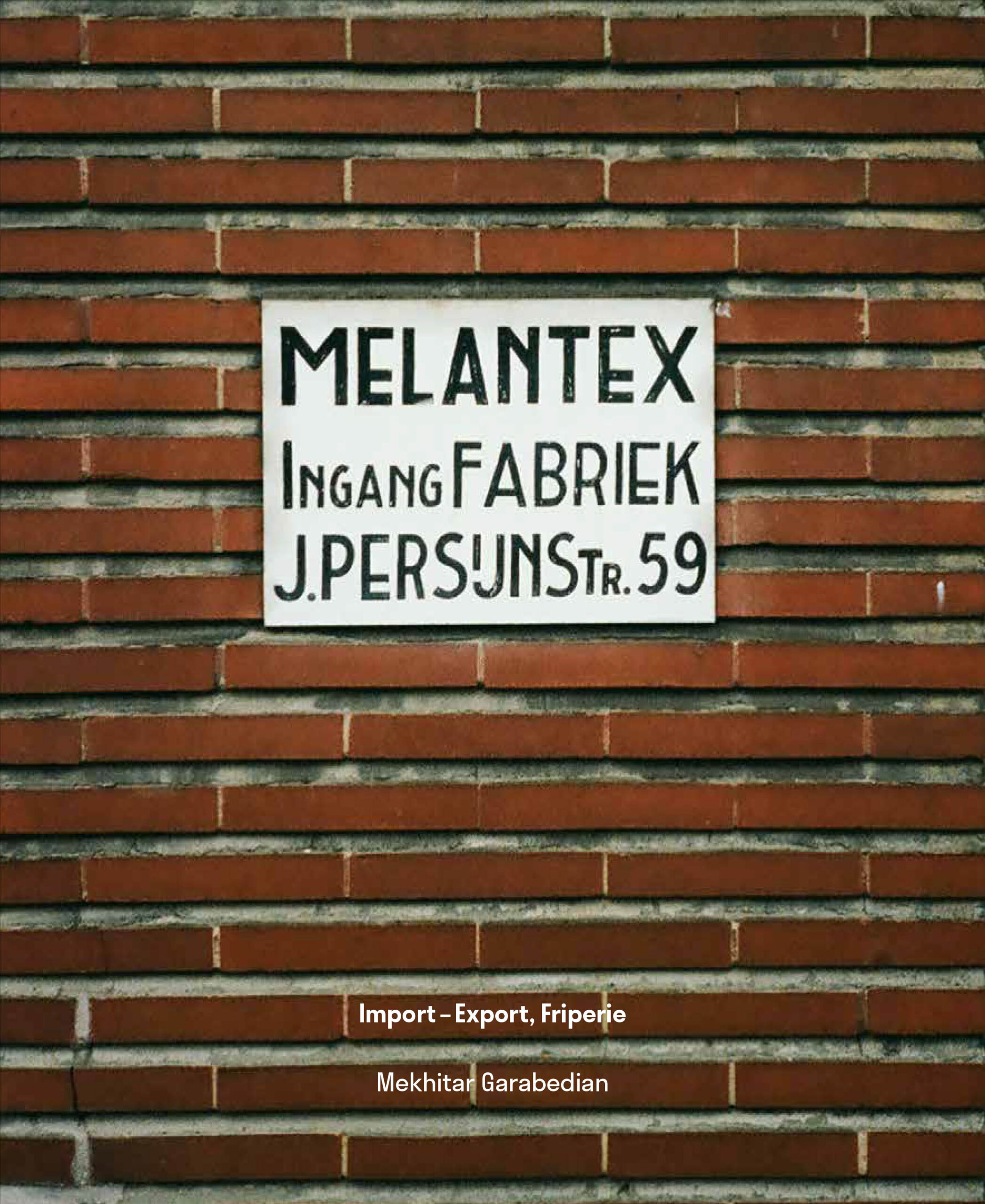

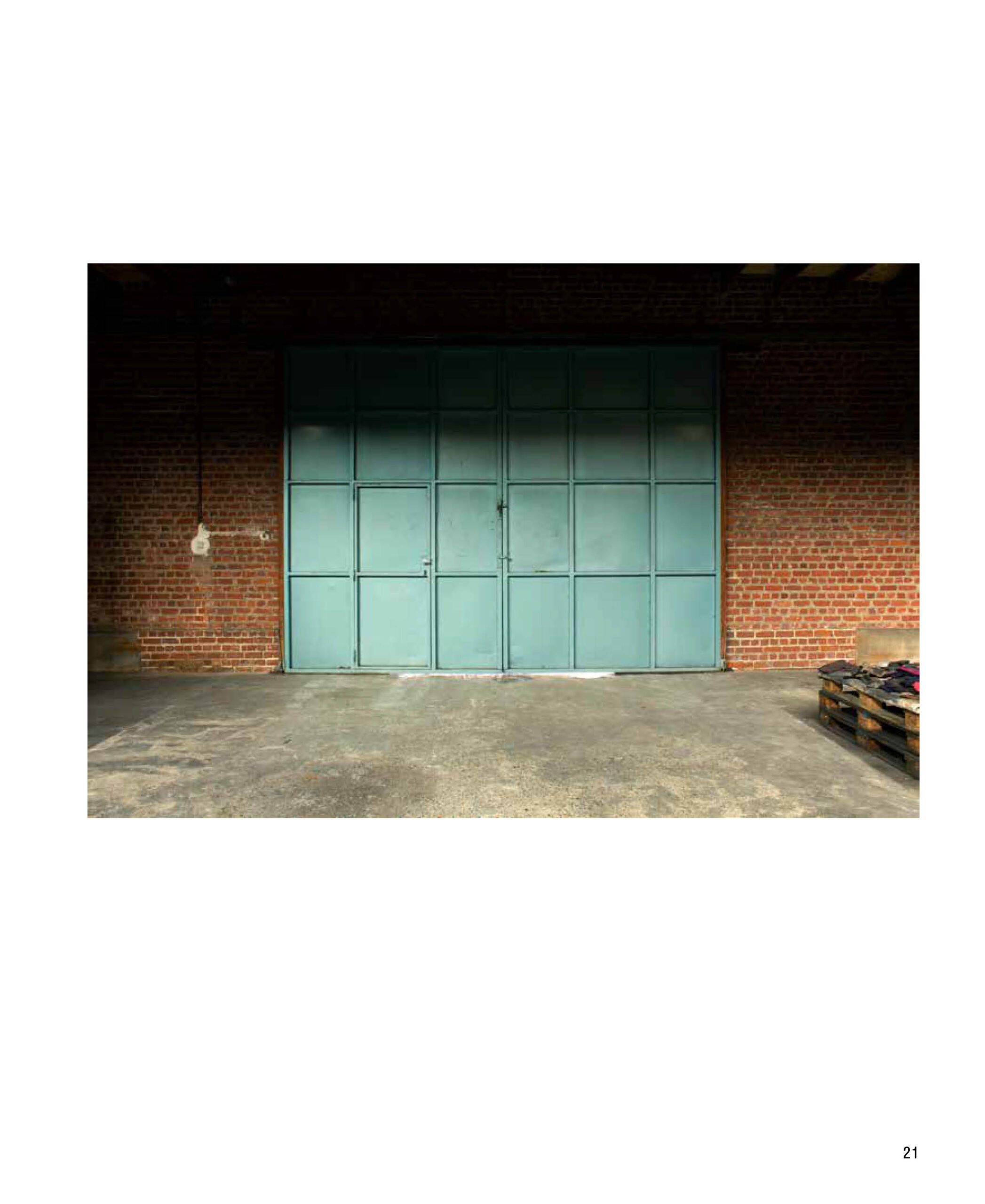
Een selectie van pagina’s uit Import-Export, Friperie, zoals ontworpen door Sara De Bondt
& citaten van Mekhitar Garabedian uit het gesprek tussen hem en Samuel Saelemakers,
zoals gepubliceerd in het boek (in volgorde van verschijning in boek en tekst):
I felt that I had to document this space, my father’s warehouse, now. It was so central and near to us as a family, but I had never photographed it, not properly. Each time I was there, different things would attract me, like the objects or the light coming through the textured glass windows. The selection for this book is made from photographs I took between March and July 2012, the first time I visited the warehouse in this way. Later, I continued going there intermittently.
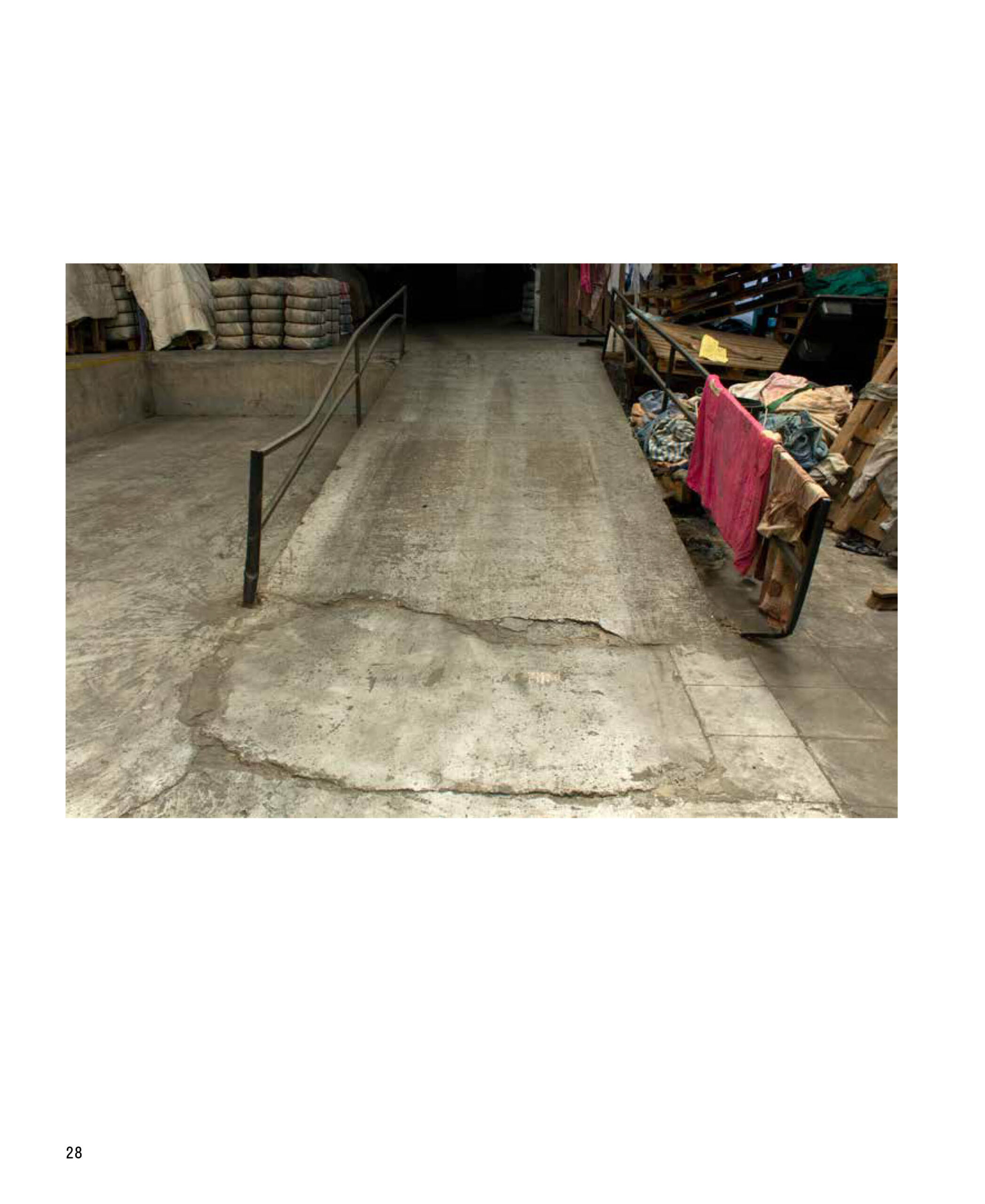
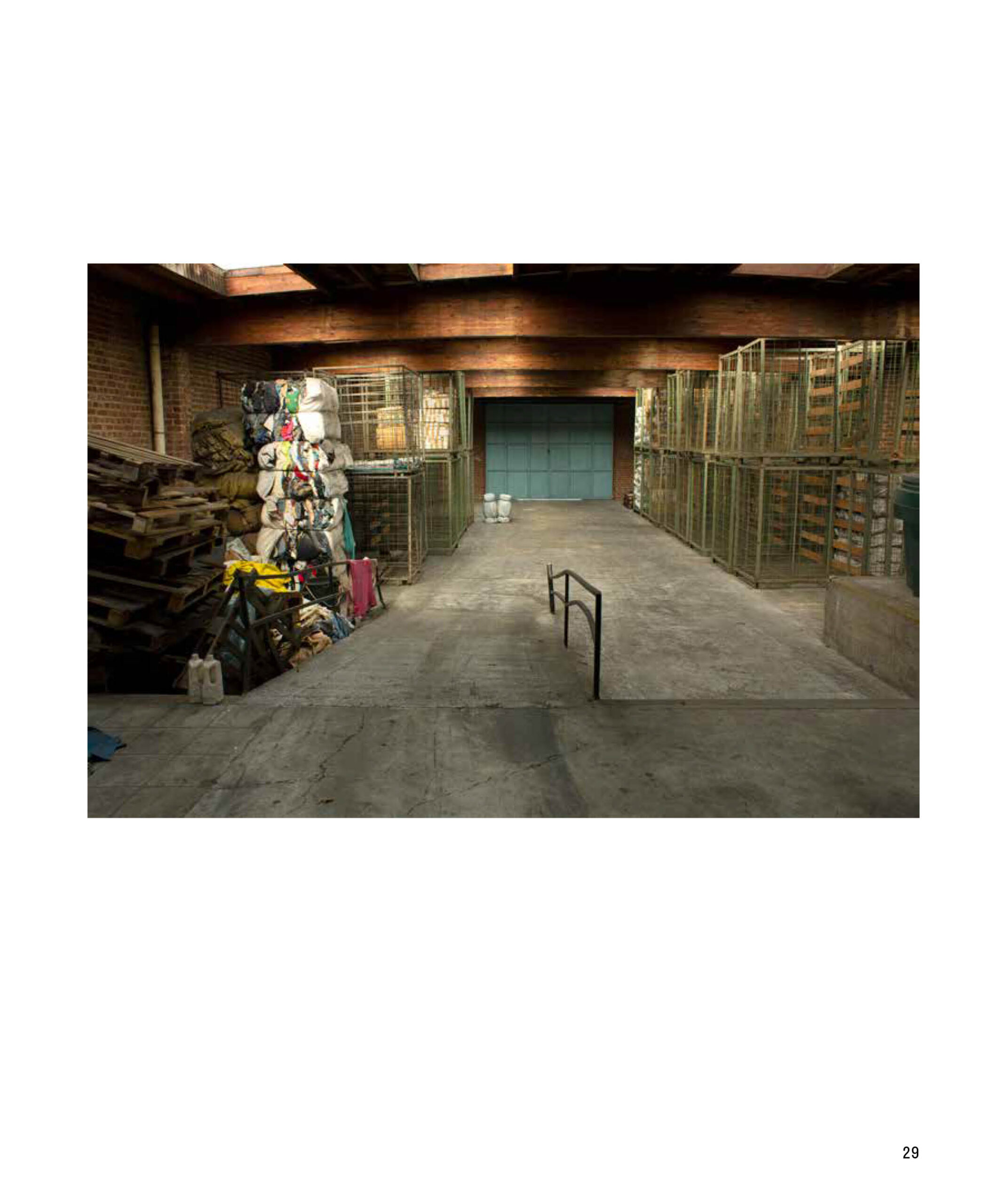
I took them when the warehouse was still, after working hours. What interested me as subject matter was not the labour that went on there. If that had been the case, I would have gone to other factories. I was interested in this place, the objects, the remains and the products of the activities, the bales of clothing and how they were stacked, as well as the packing, colours, and repetition.
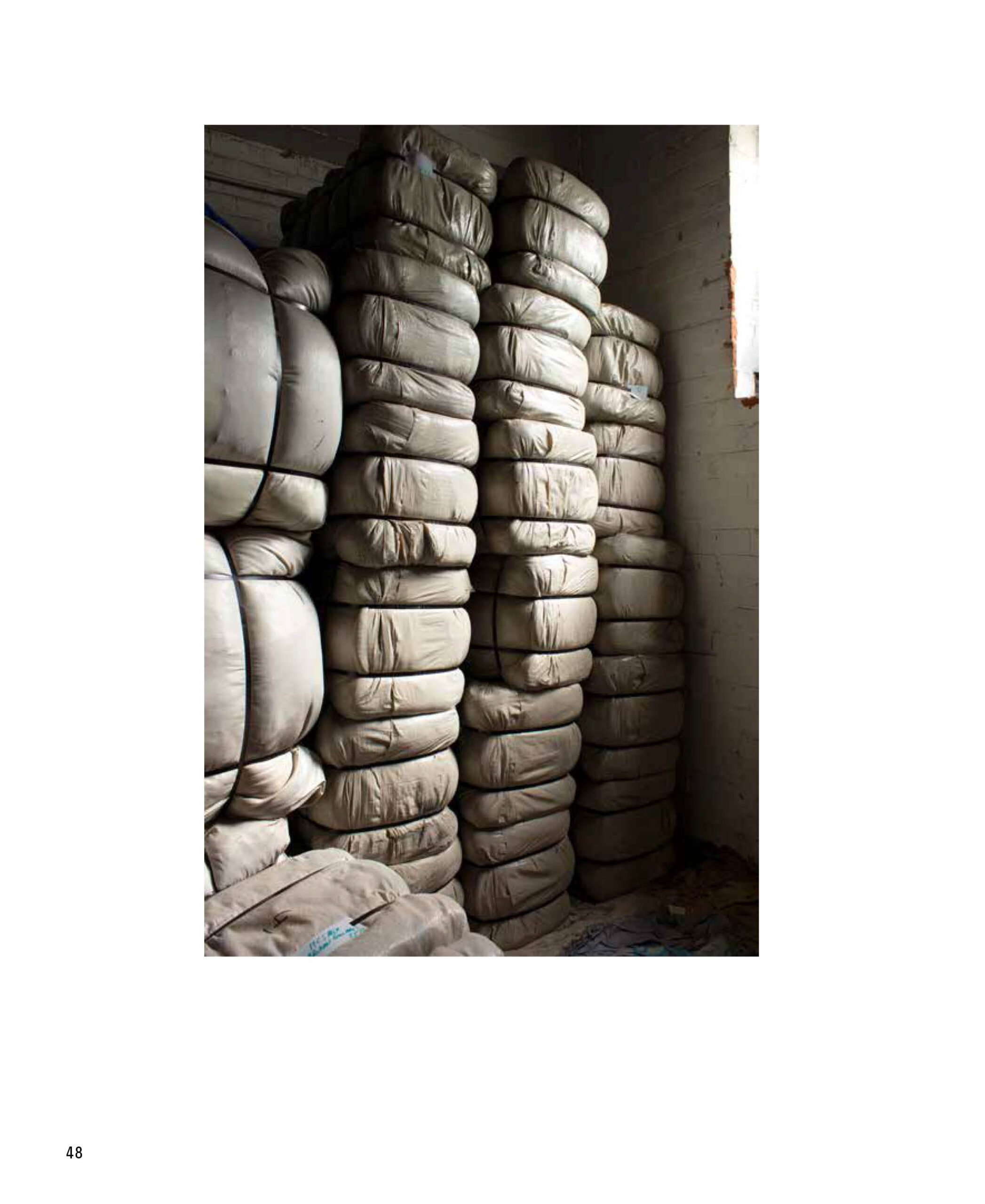
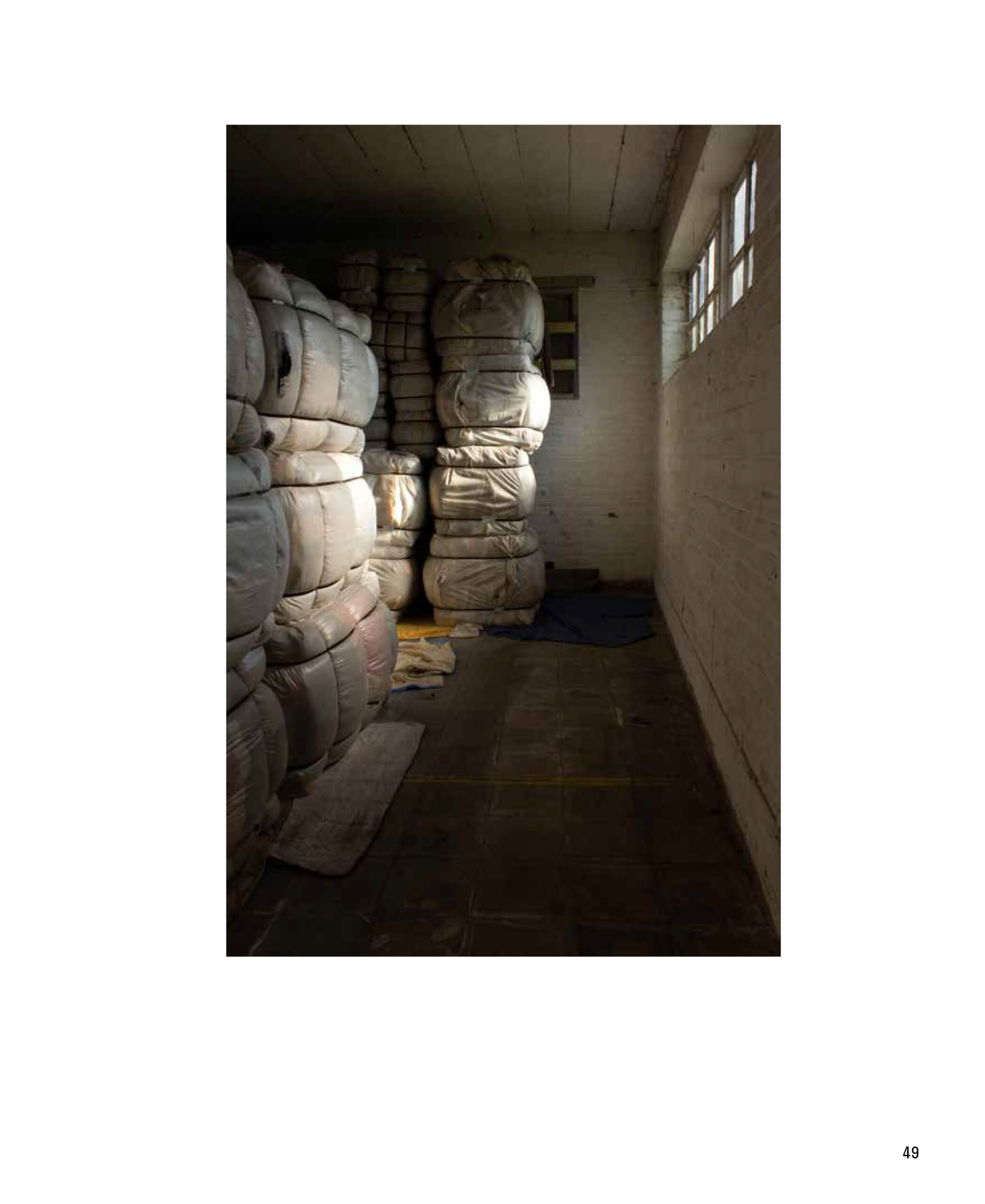
Another way to put it would be that the camera is a kind of archiving machine: every image it produces is a priori an archival object. In this sense, I think of these images from ten years ago as found images. Instead of making new ones, why not work with images that I’ve taken and ‘kept in a box’? Why not reuse them as ‘found’ objects? Because every photograph is a found object in a way.
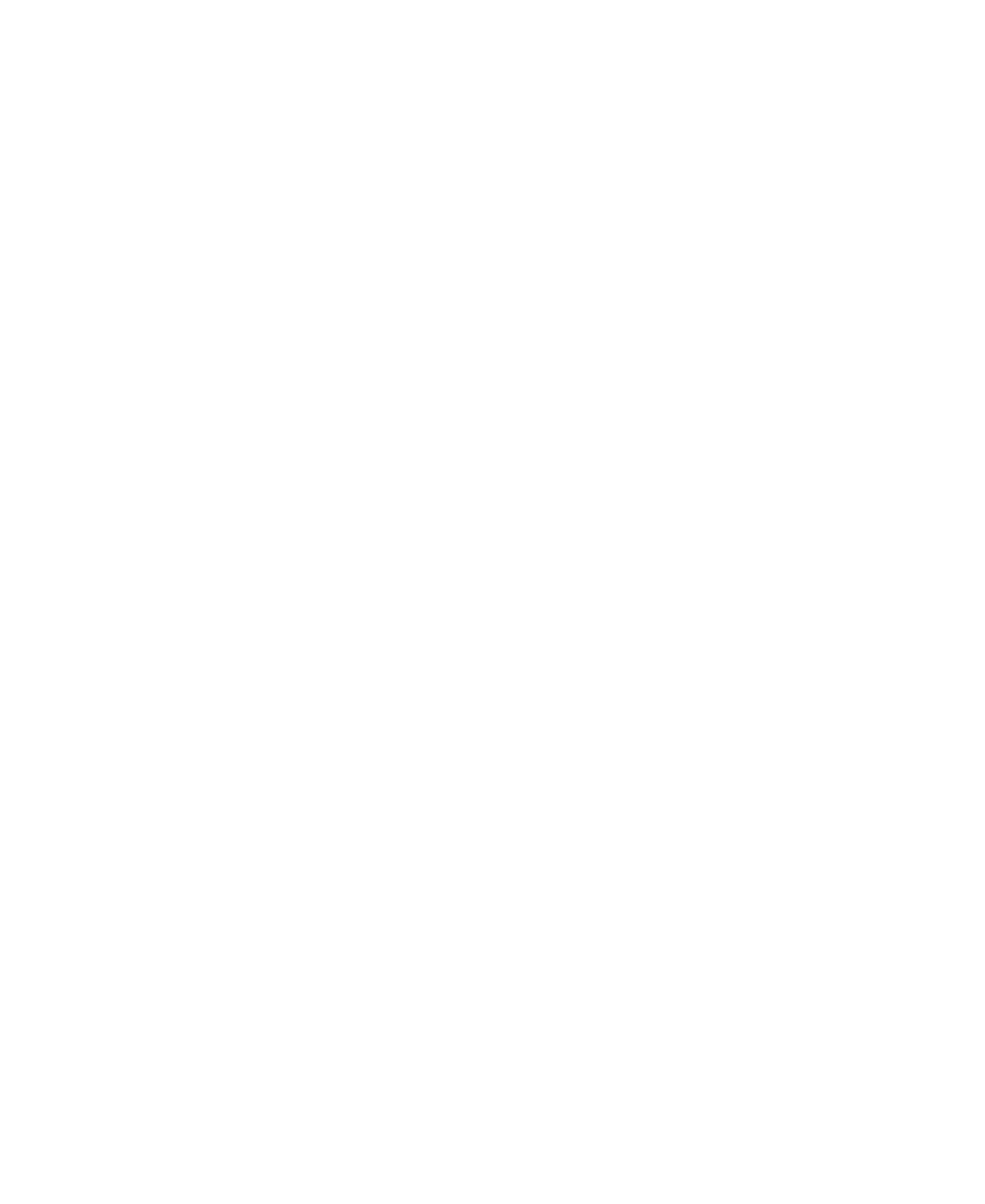
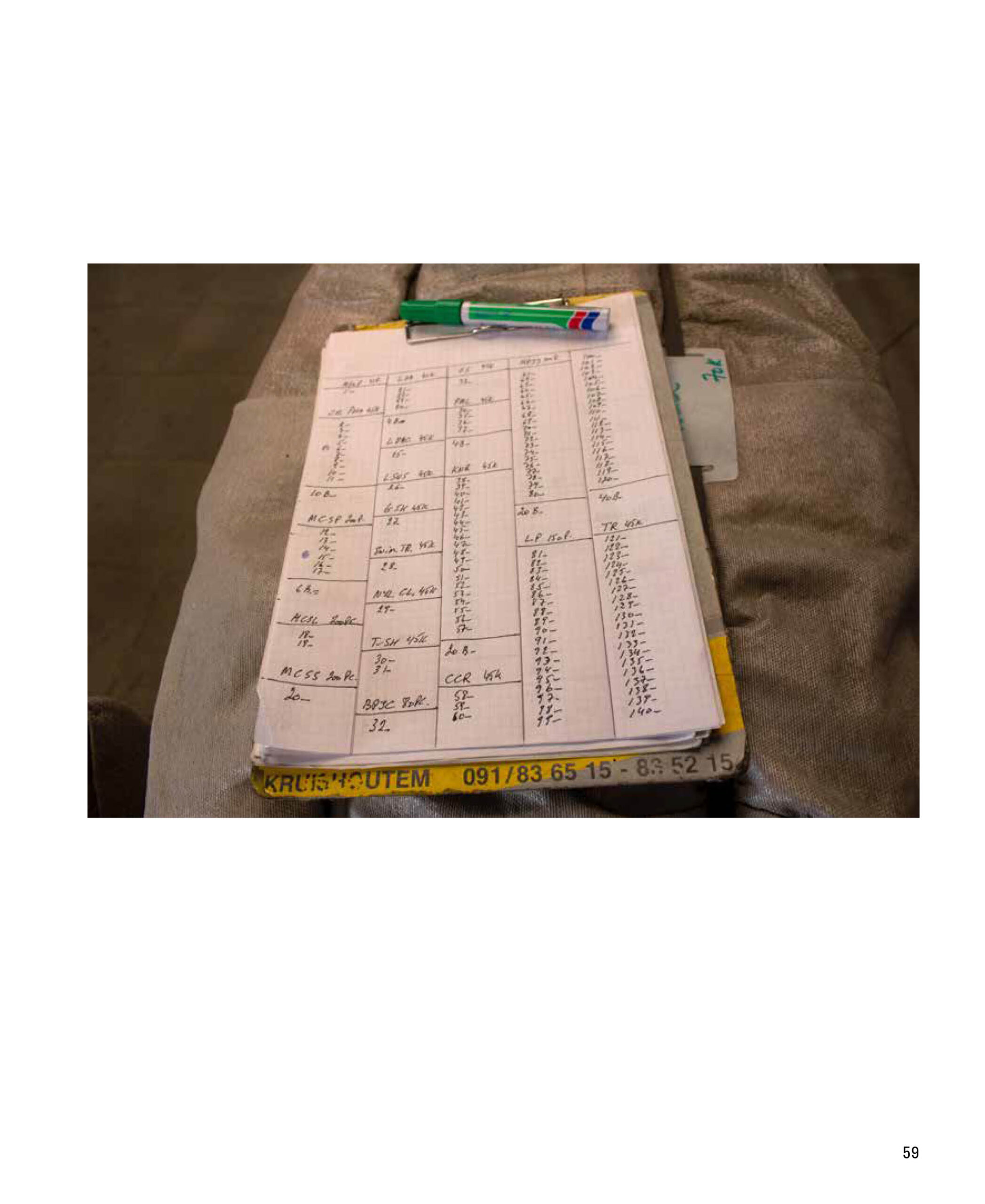
To come back to the photographs from 2012, I did feel like I was revisiting a partly forgotten self, the one who made the pictures, and rediscovering what he was trying to capture, seeing where it failed and worked. But my current self made the selection for this book, which could only be made now. Choosing the images was a slow process that took several months.
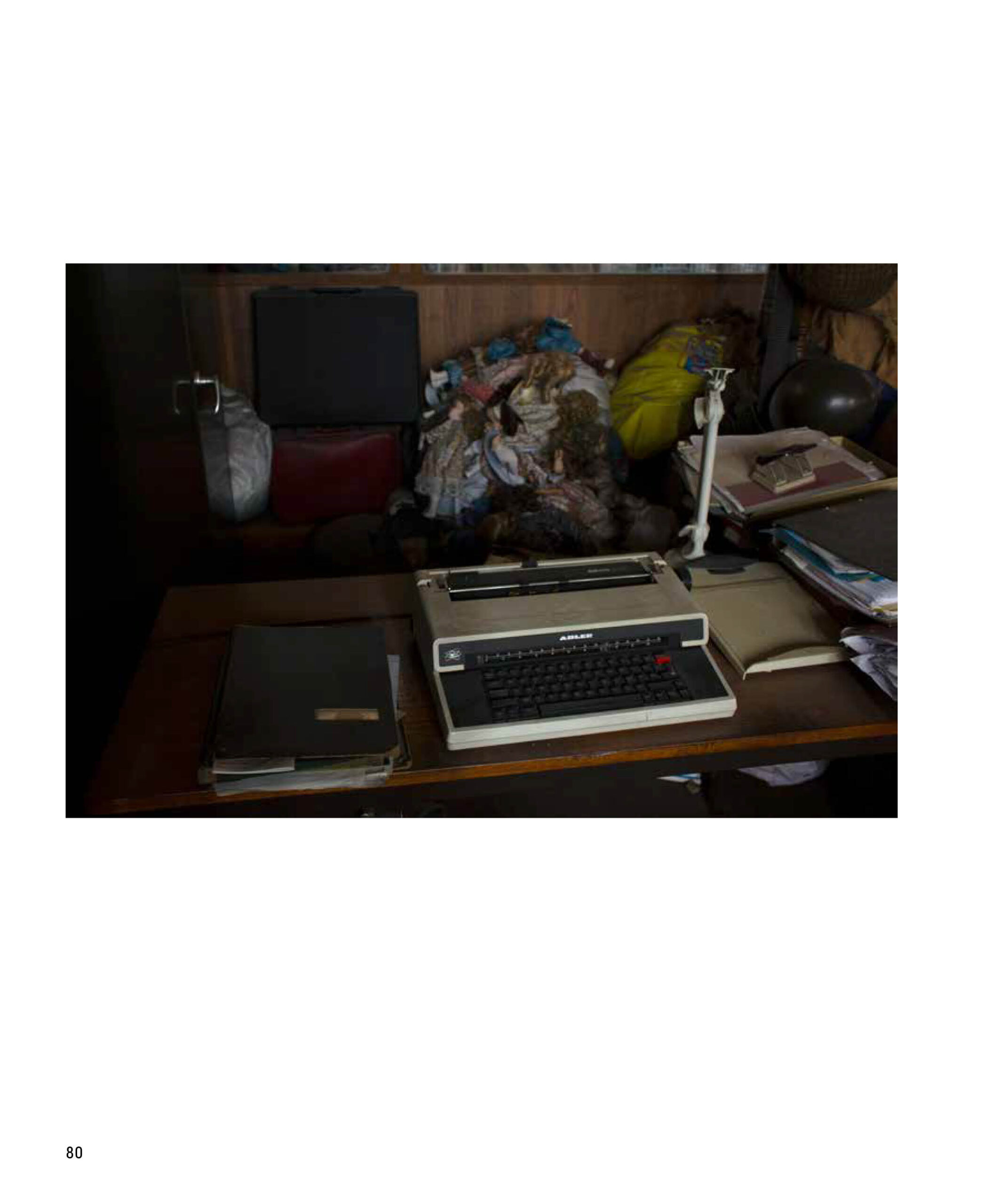
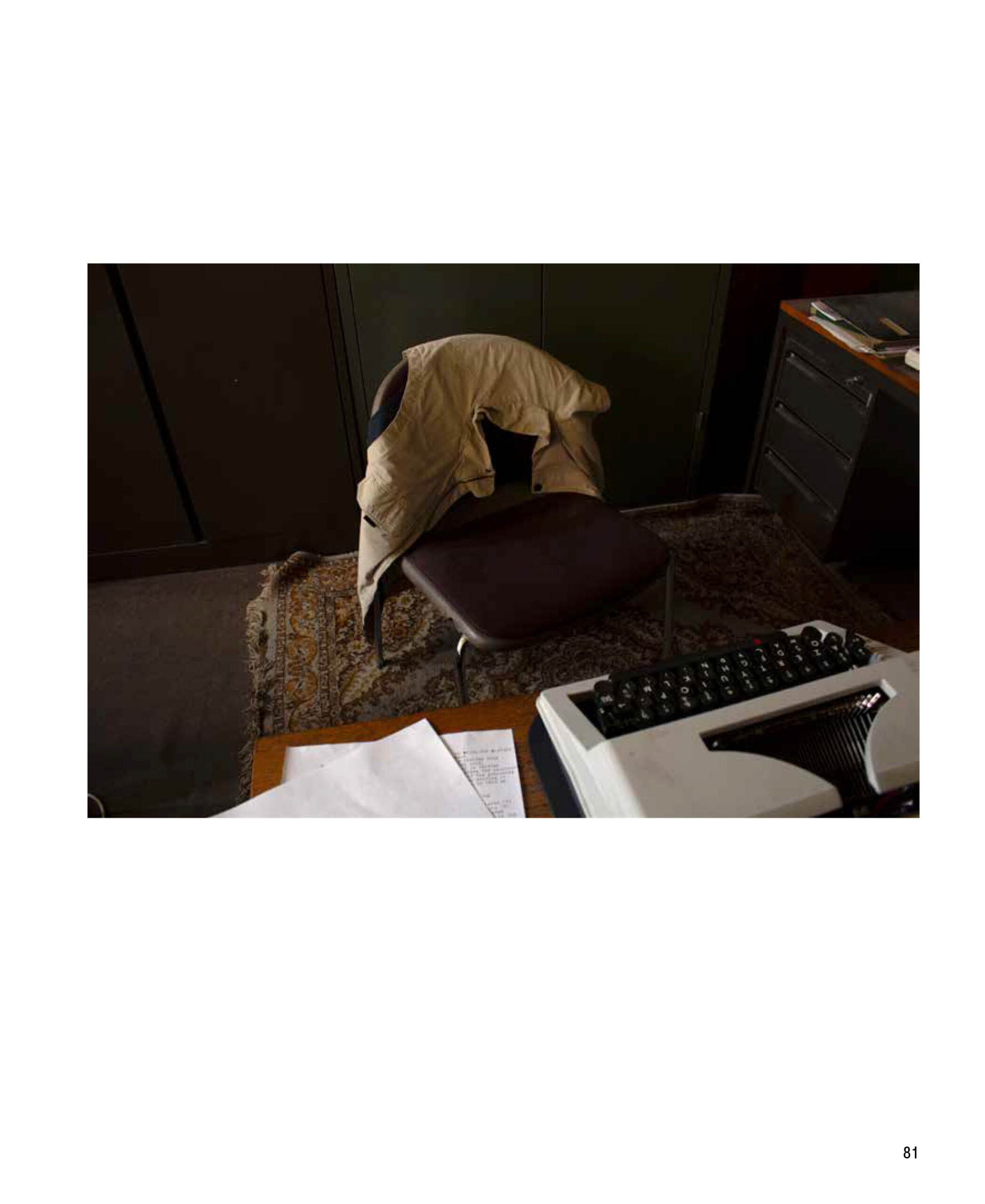
I turn to my family, documenting the parental house – mapping and scanning it – because it’s the place of everyday customs, like cooking, which carry markers of the diasporic experience. This experience is an intimate one. It affects subjectivity and the self. Diaspora means experiencing a disseminated, shattered, divided self.
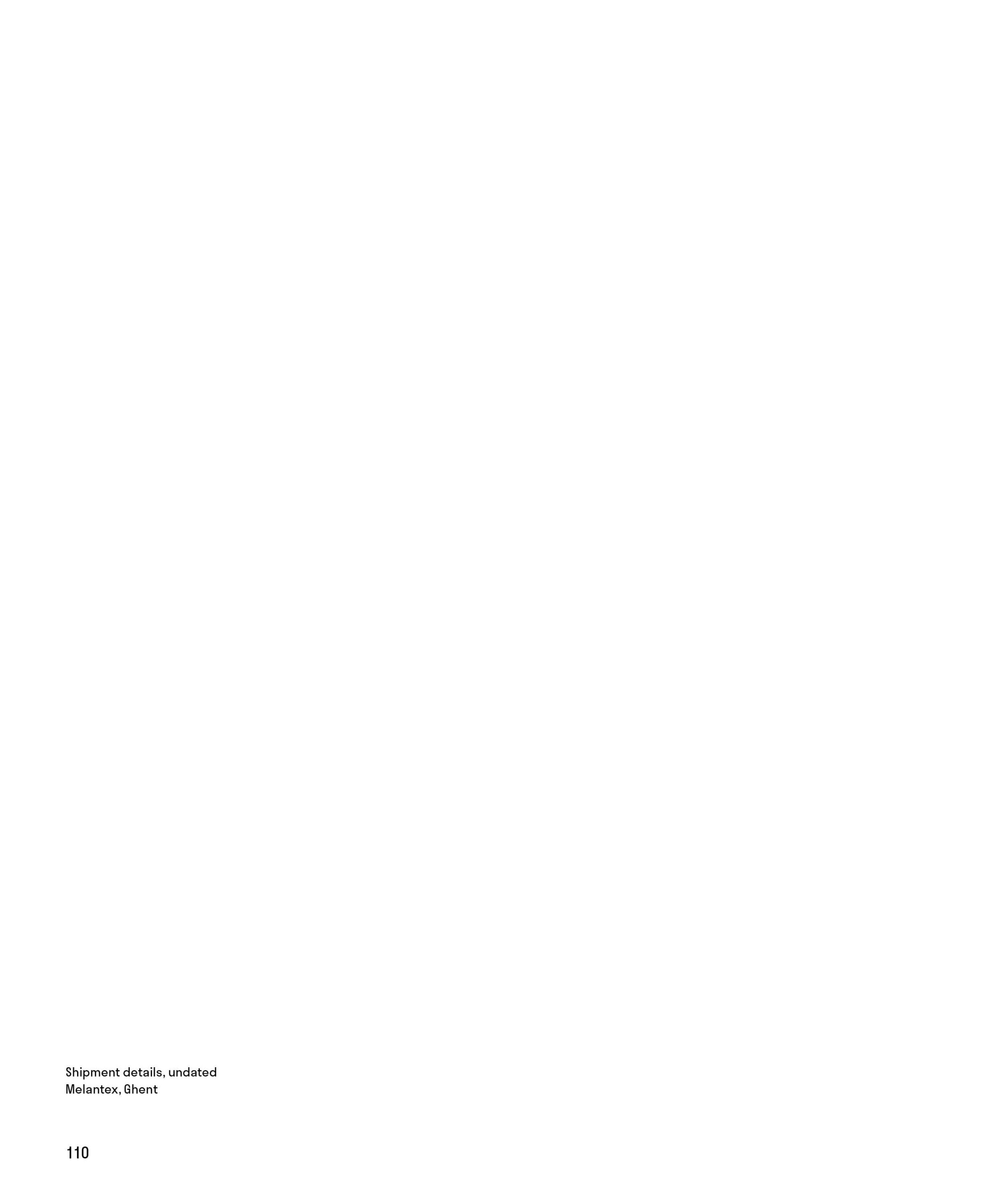
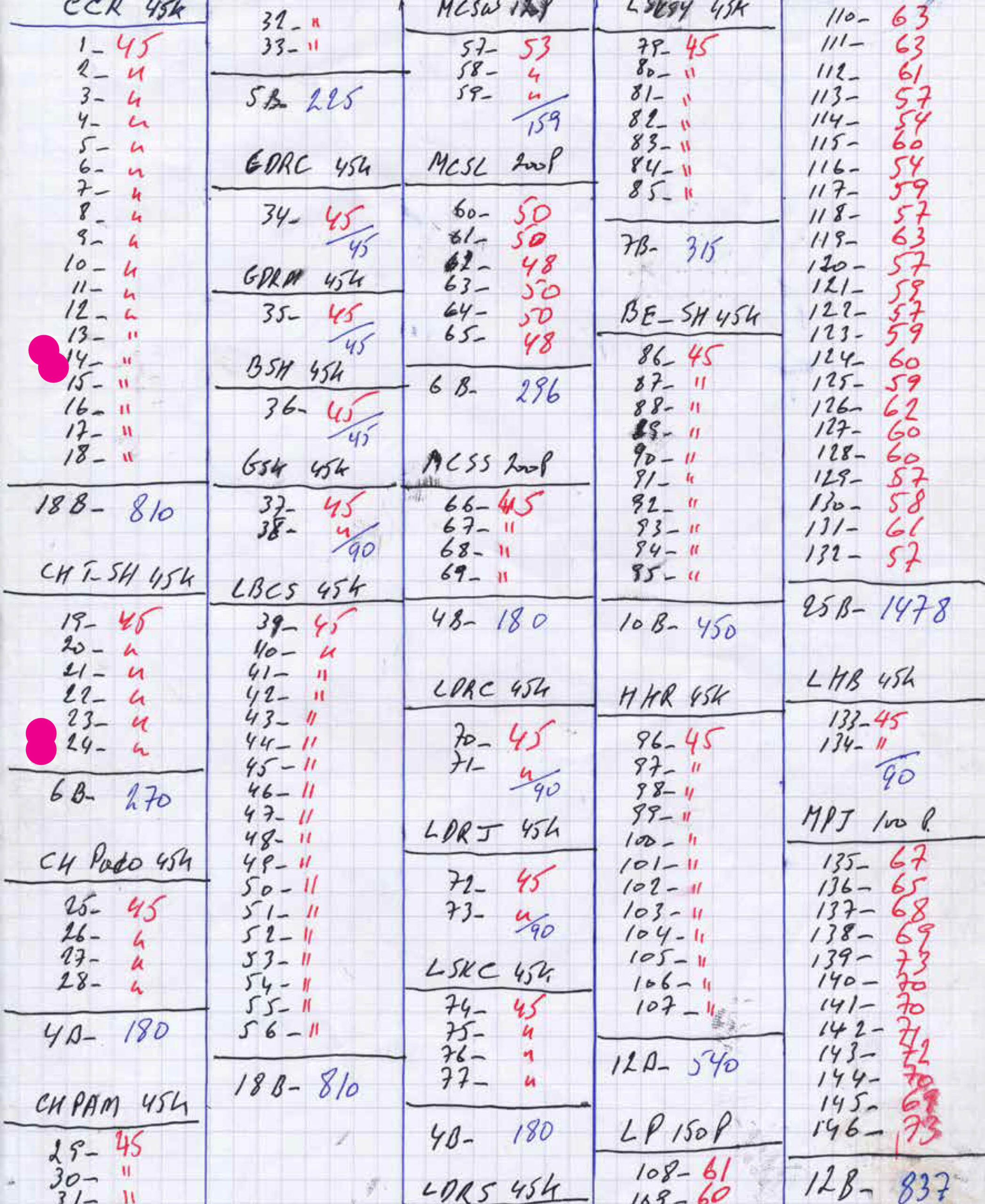
Placing casts of textile bales does focus the viewers’ attention on timelines of trade, transport, and exchange. In the 1980s, the export market for my father’s company was mainly Syria and Lebanon, because of economic sanctions prohibiting European exports to Syria. Later new export markets opened, such as Benin, Ghana, Ivory Coast, and Pakistan. While in Europe the clothing inside the bales were discards, they were valuable elsewhere, at least until the global spread of cheap, mass-produced new clothing. (…) My father worked beyond retirement age – he was seventy when the company closed. He was someone who worked a lot, and felt the decline of this economic model very closely. It was difficult for him to let go, and to see it come to an end. It must have been hard to admit that this part of his life had concluded. In the words of philosopher Vinciane Despret, this book is a way for me to keep “a space for him”
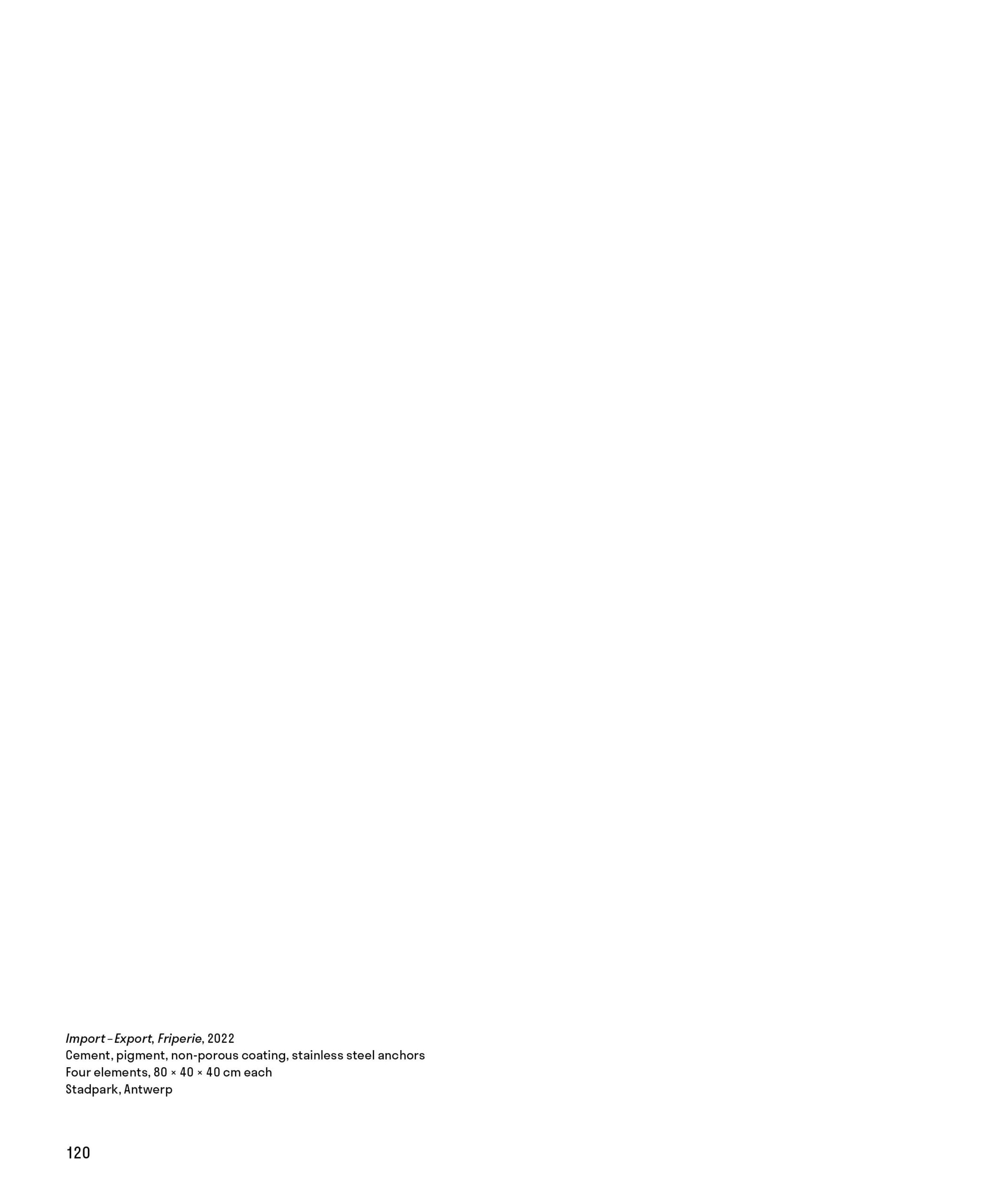
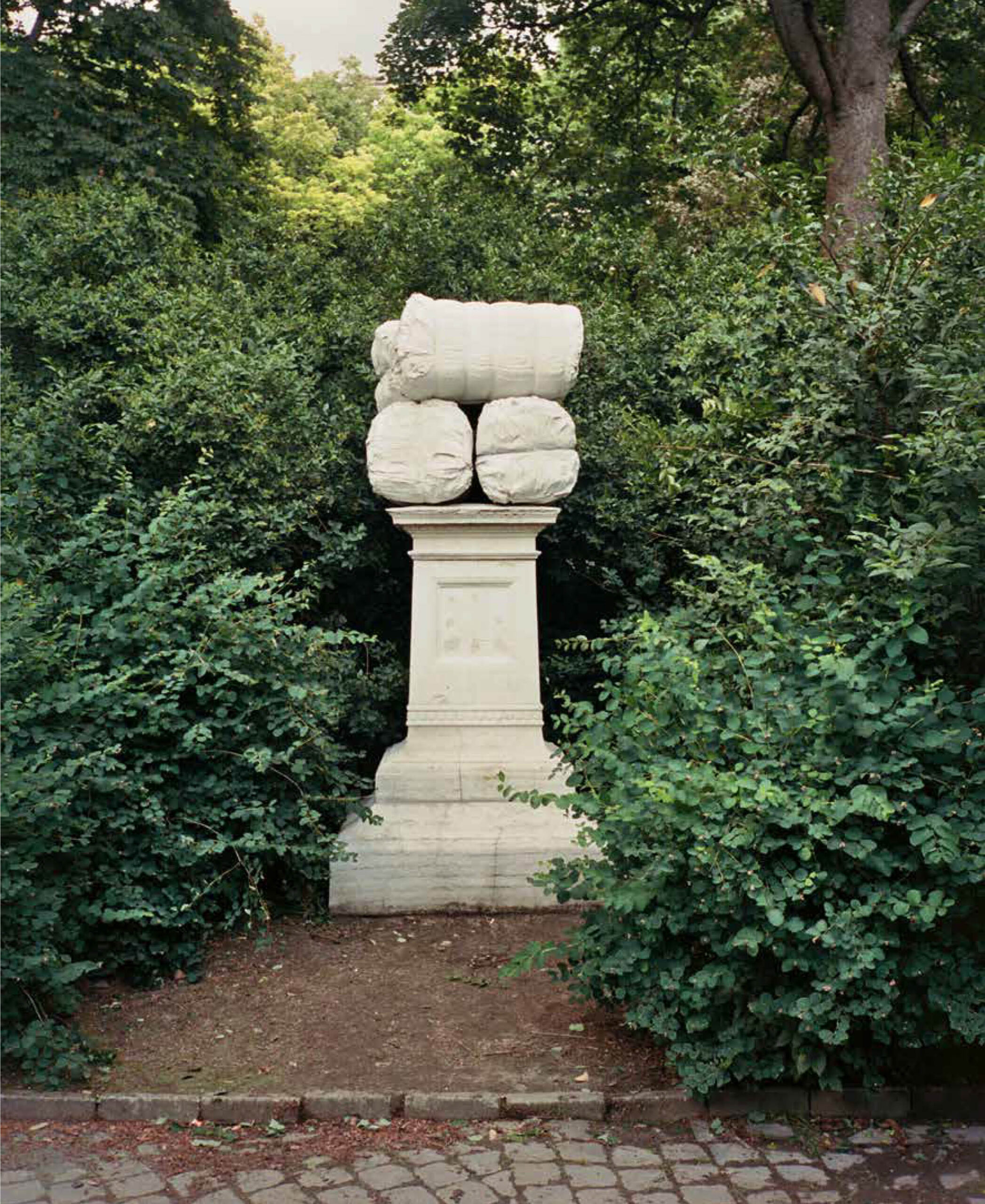

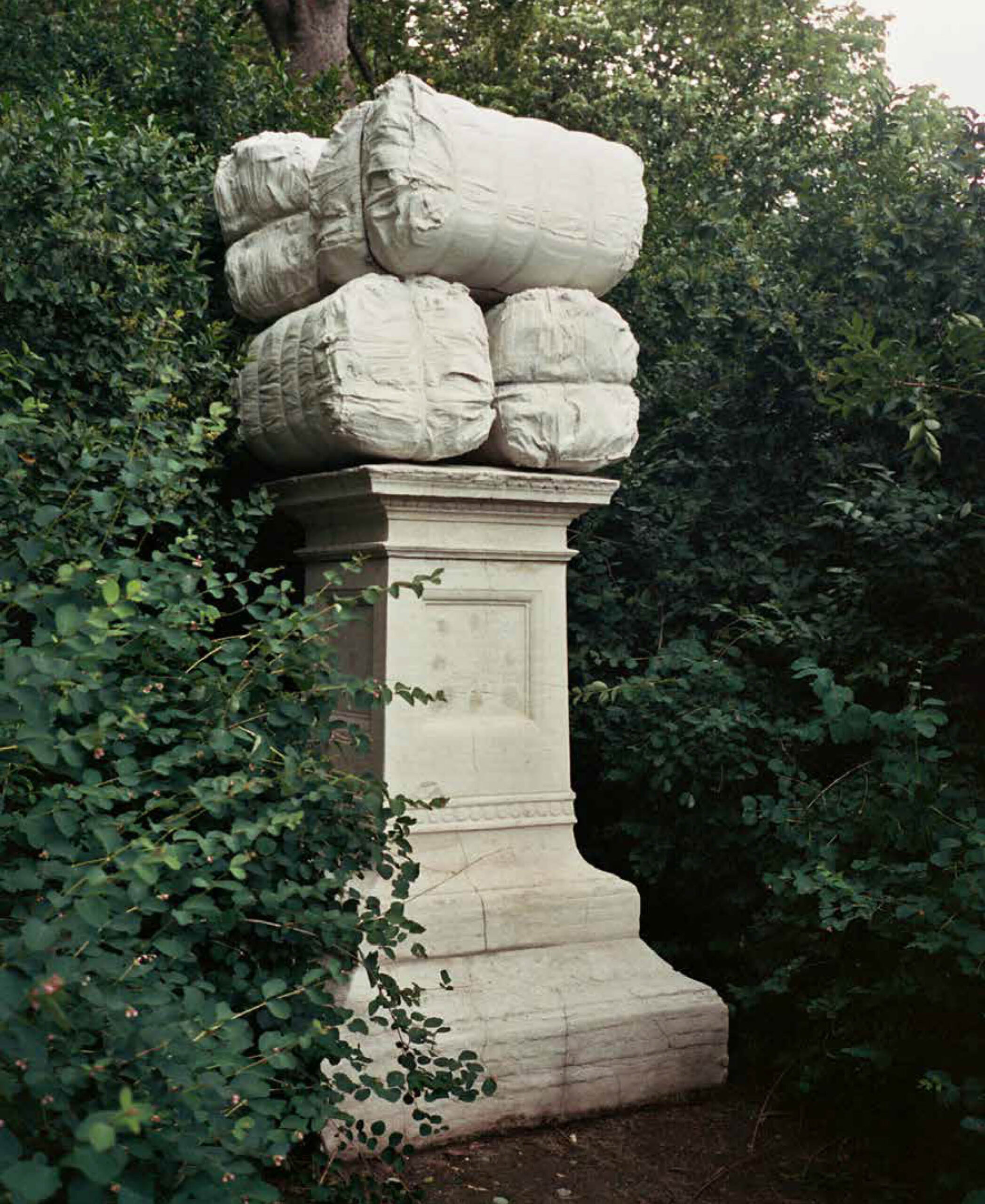
Import - Export, Friperie:
Selected Bales
In samenwerking met
Sam De Buysere, Miles Fischler, Axel Korban, Thor Salden, Stine Sampers en Joud Toamah
Uitgenodigd door
Mekhitar Garabedian
Ontwerp
Sara De Bondt
Jaar
2023
Uitgever
Occasional Papers
Drukker
Zwart op Wit
Eén gratis exemplaar per persoon verkrijgbaar aan de balie van de Kunstenbibliotheek of via de kunstenaar, zolang de voorraad strekt.
Deze publicatie functioneert als losse insert bij het gelijknamige boek Import - Export, Friperie en kwam tot stand naar aanleiding van de BOEKS tentoonstelling.
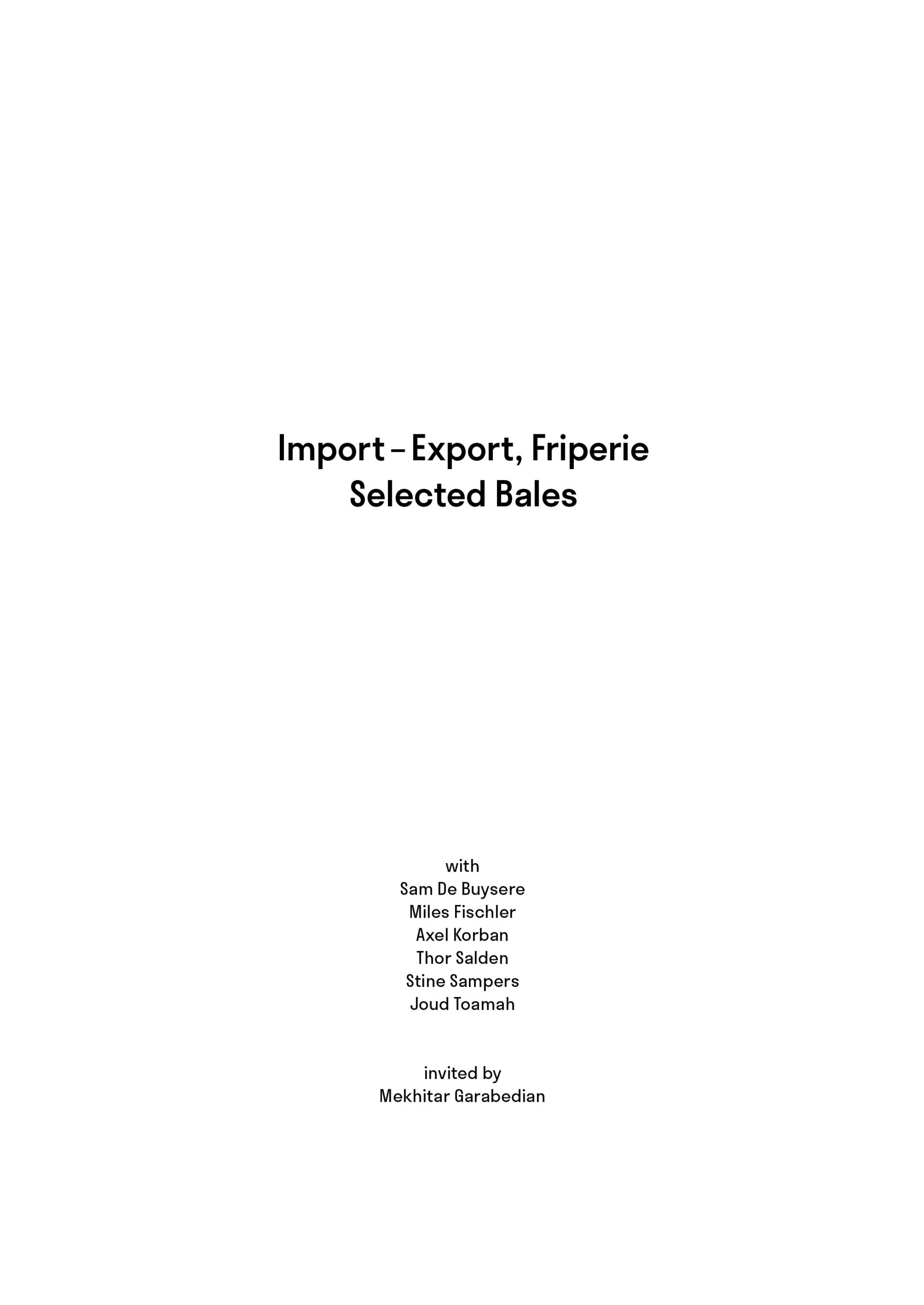


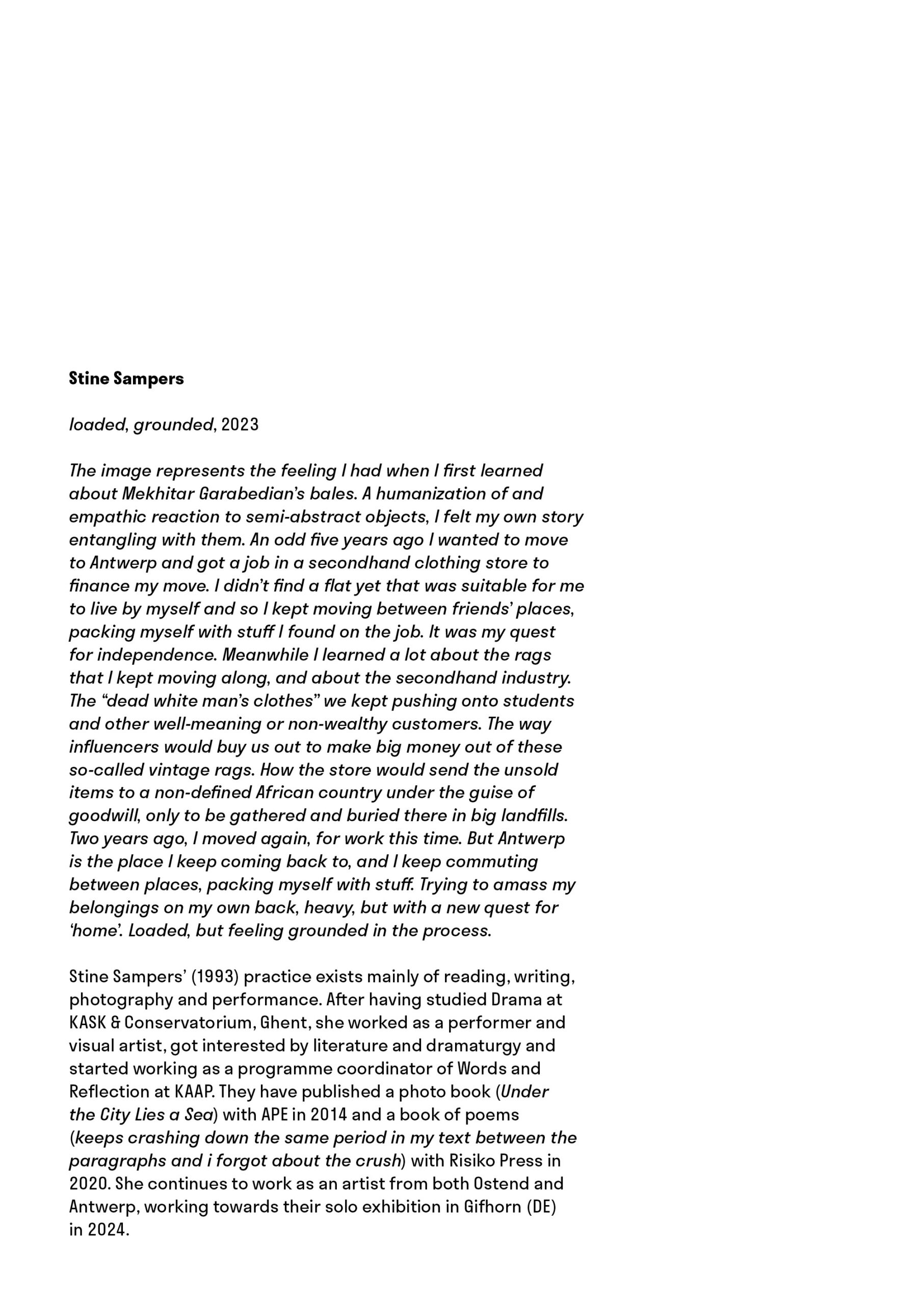
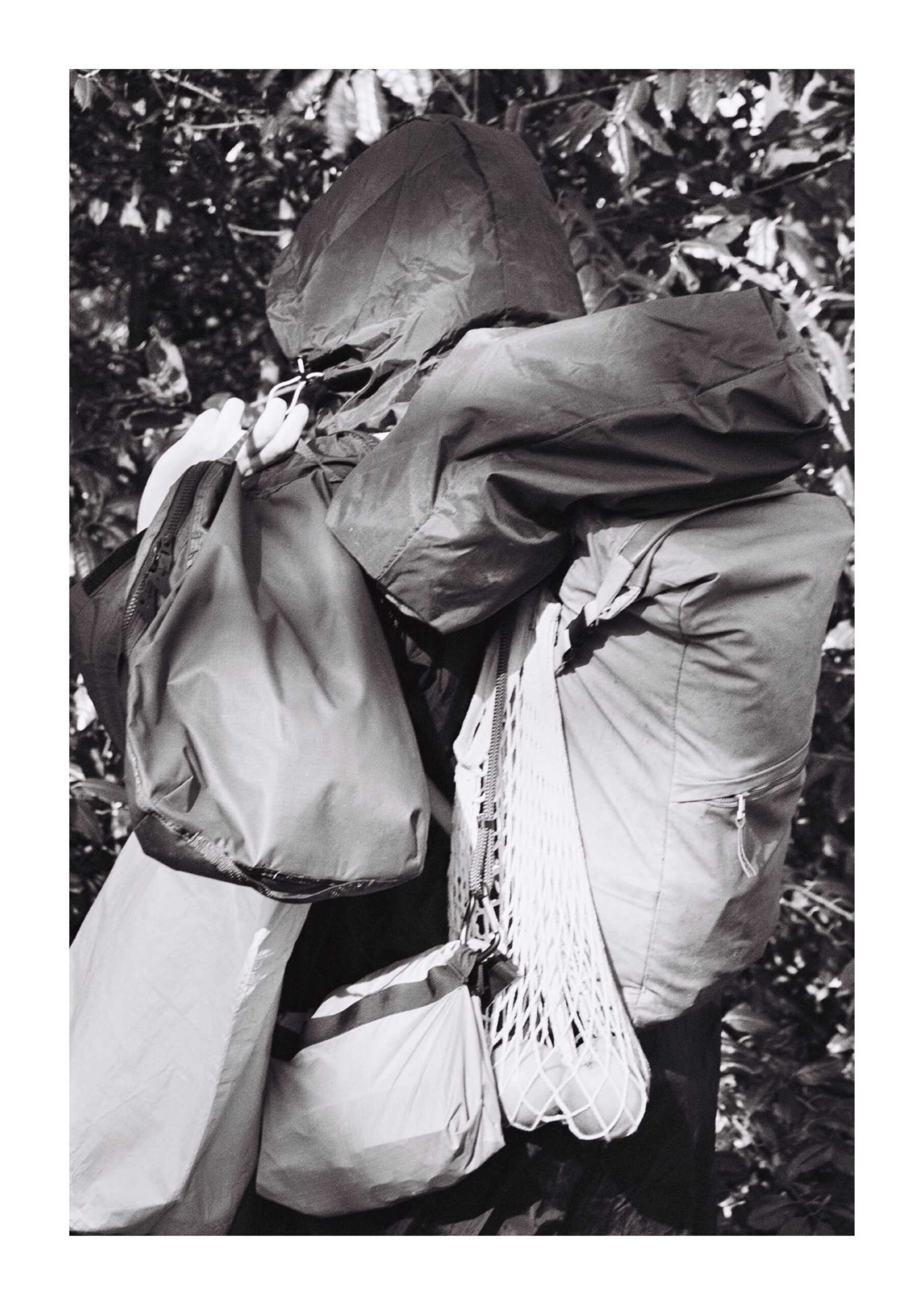
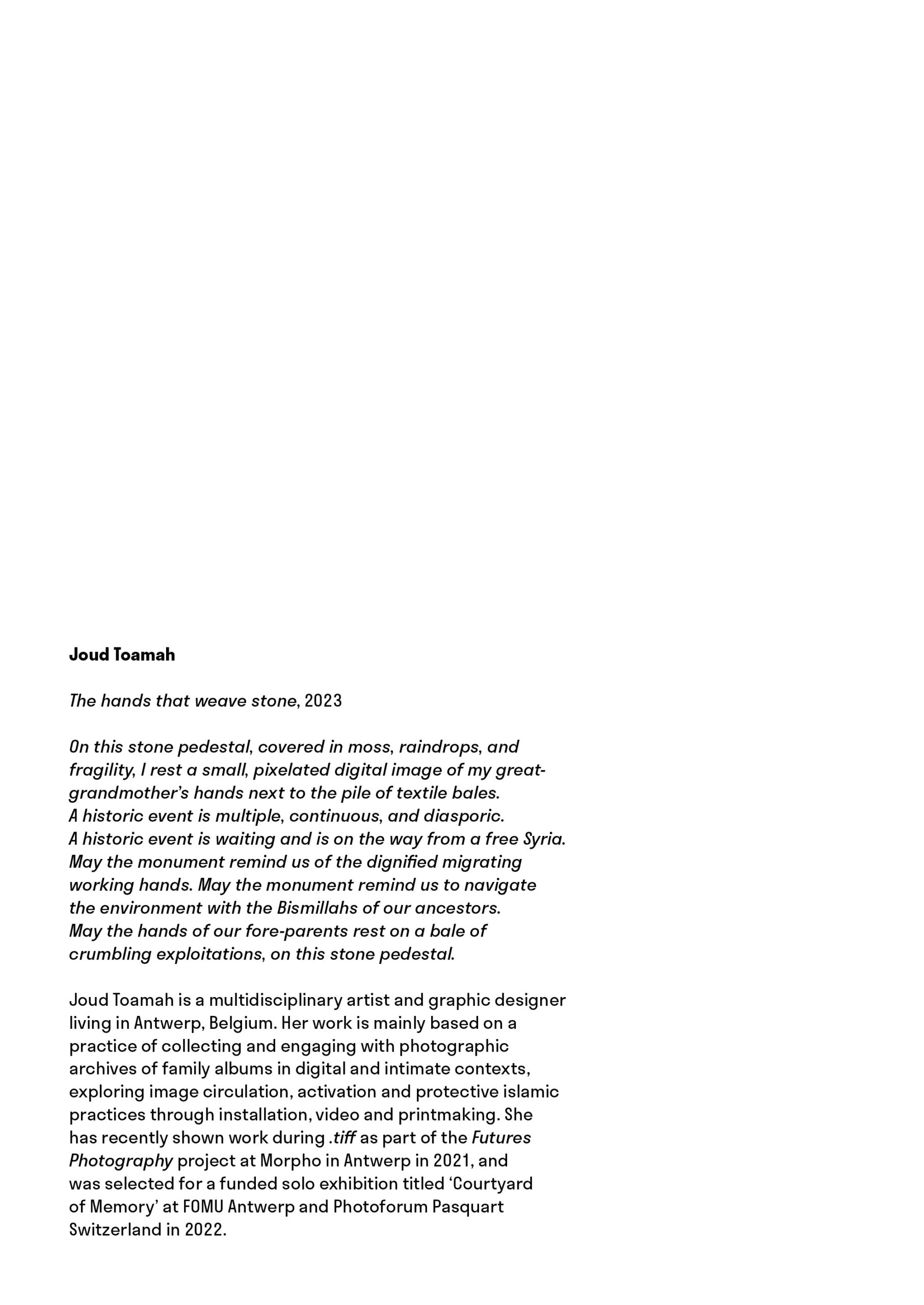
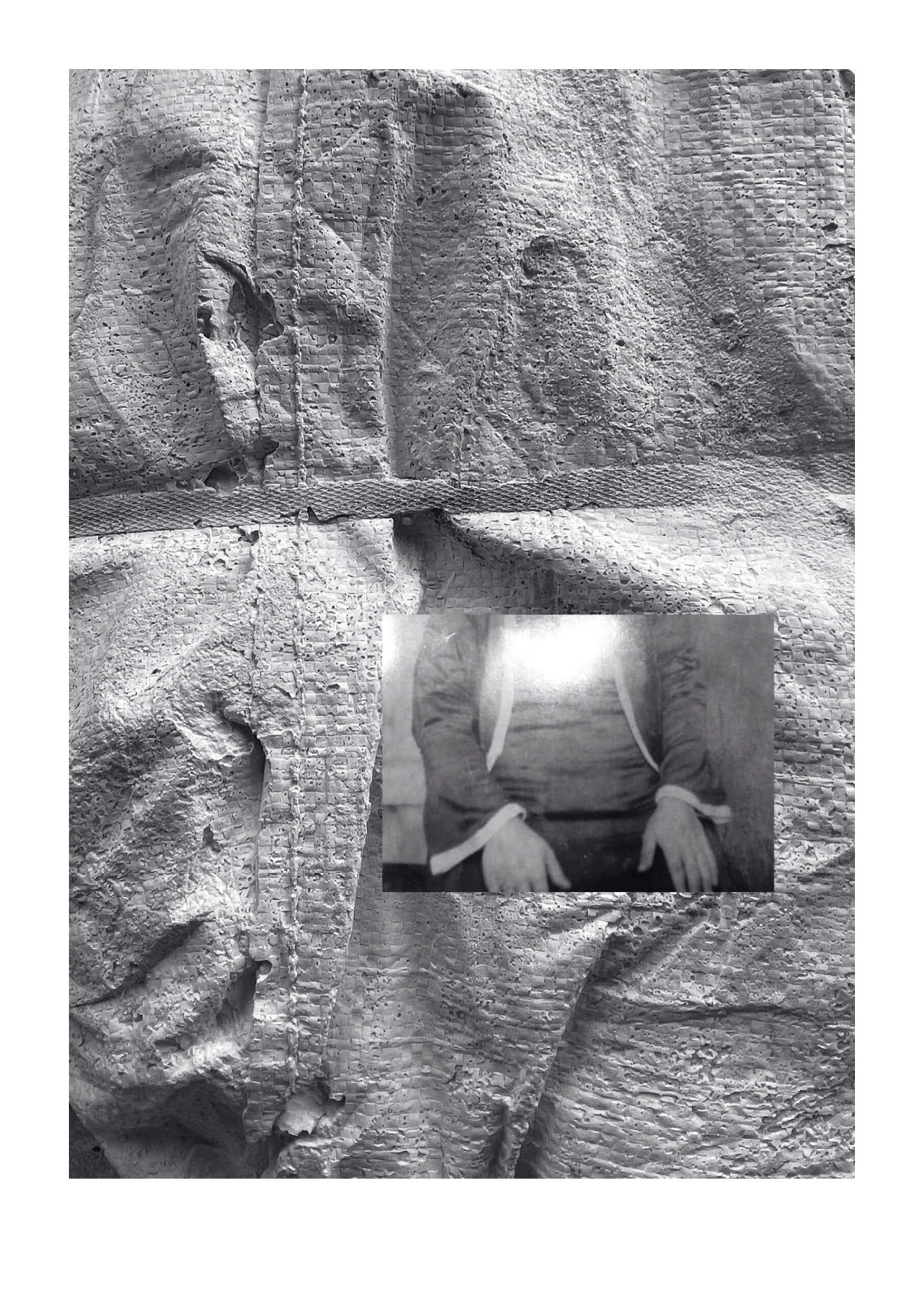
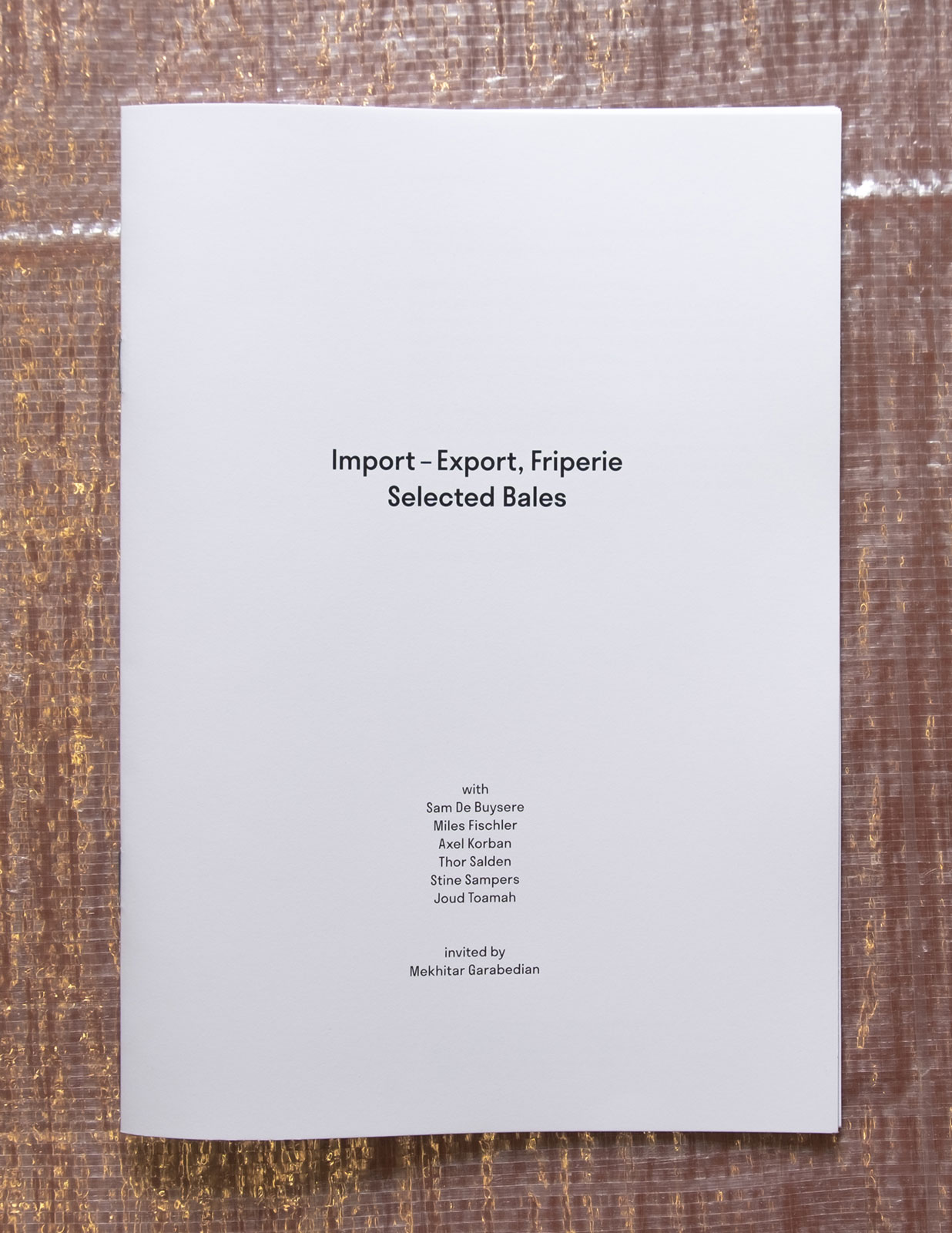
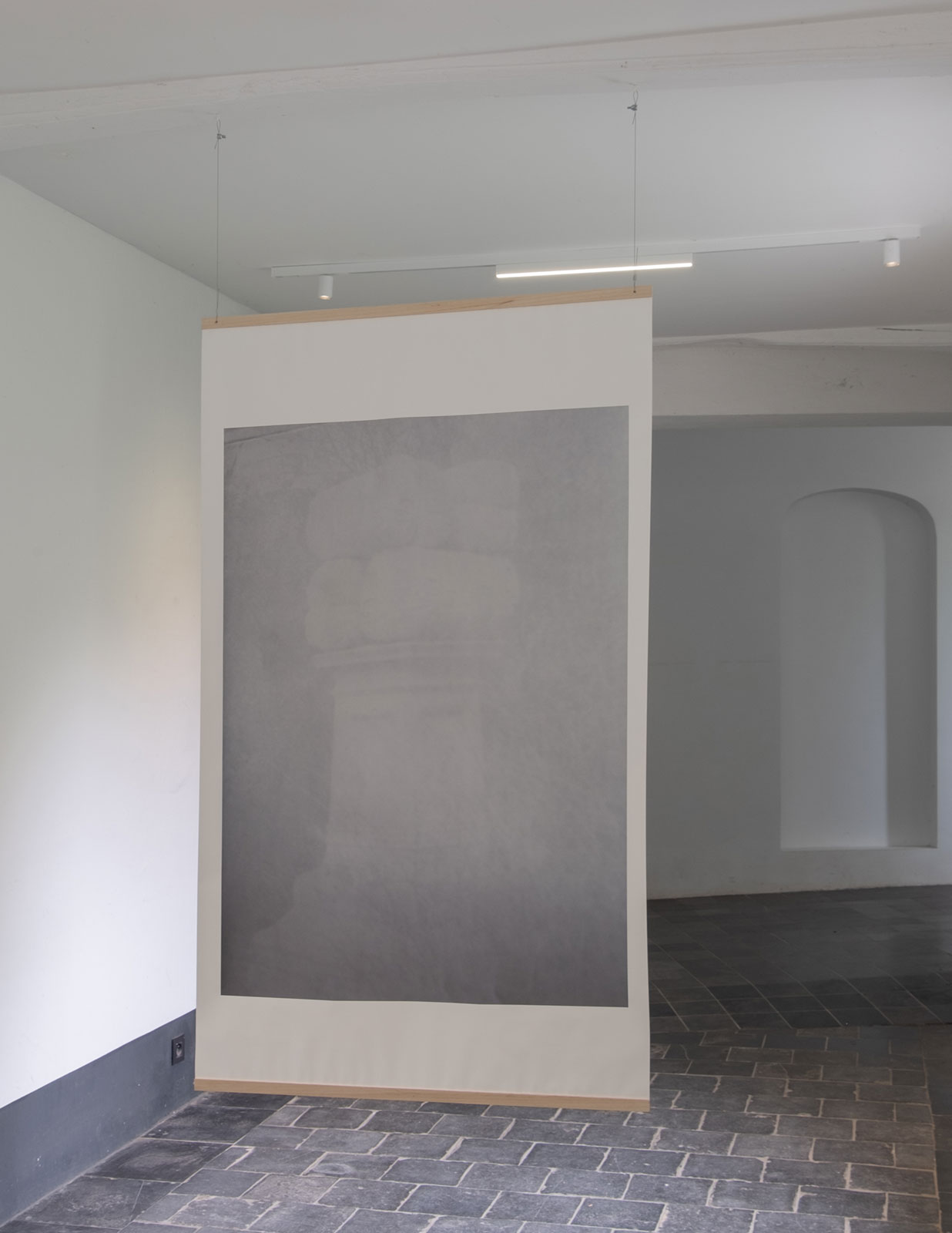
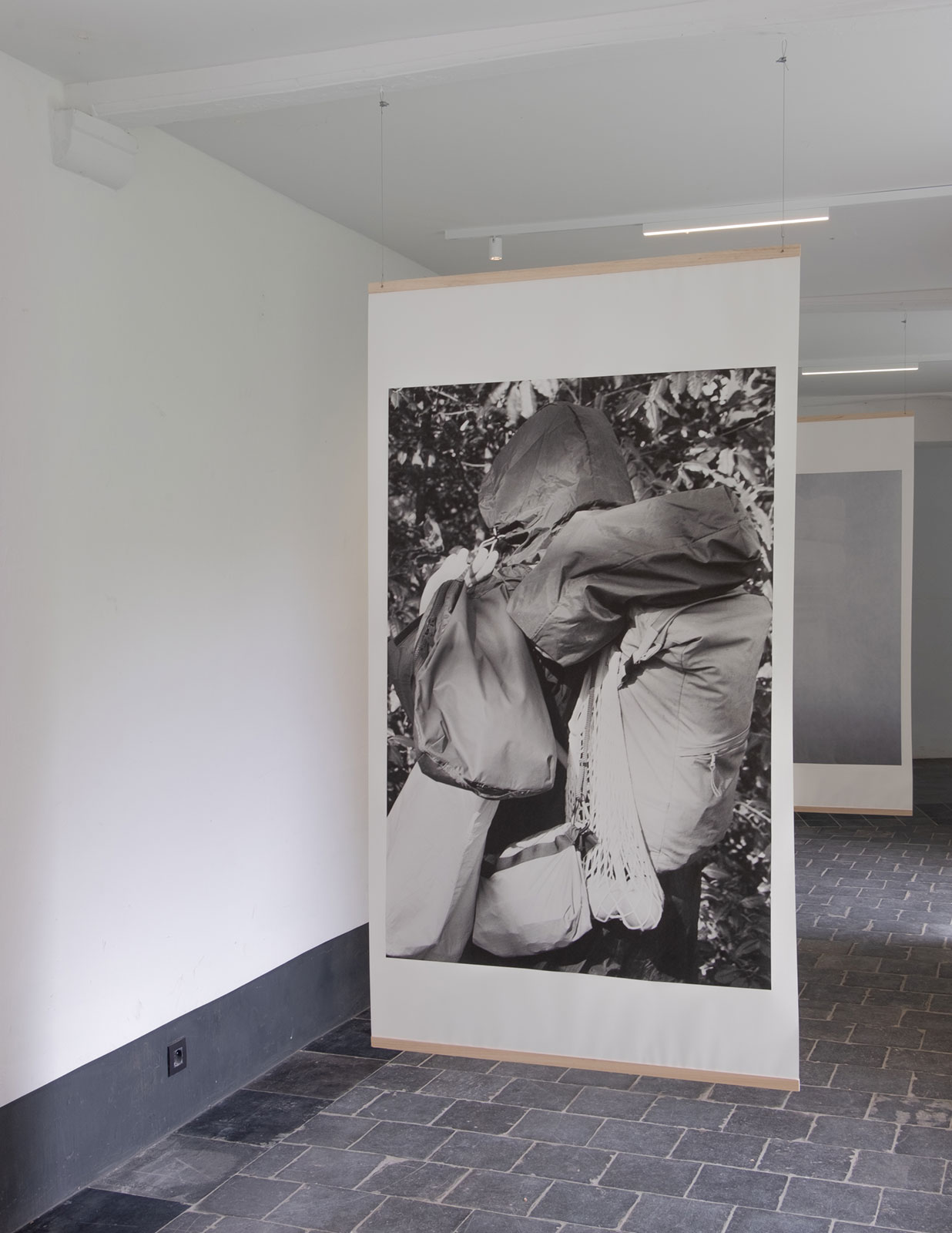

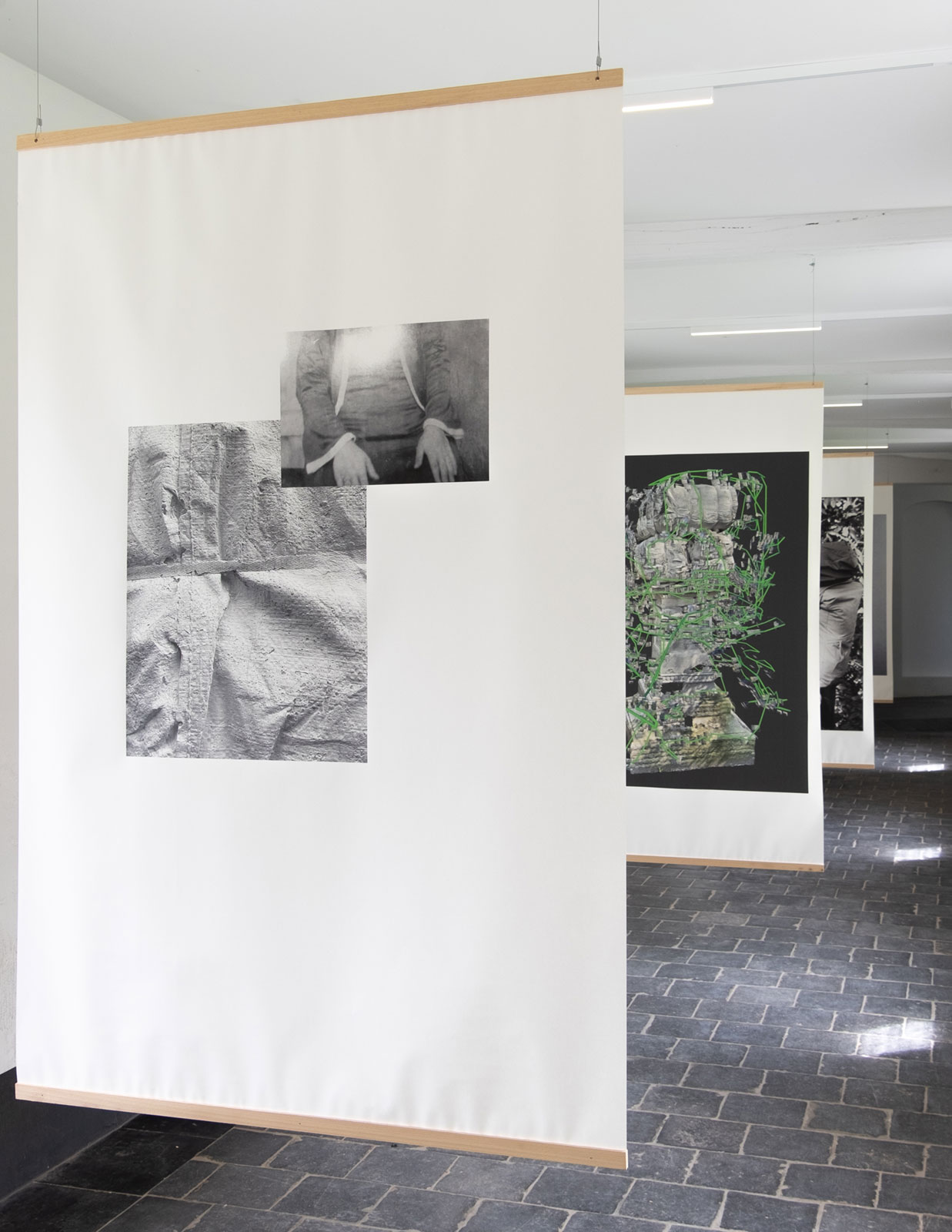
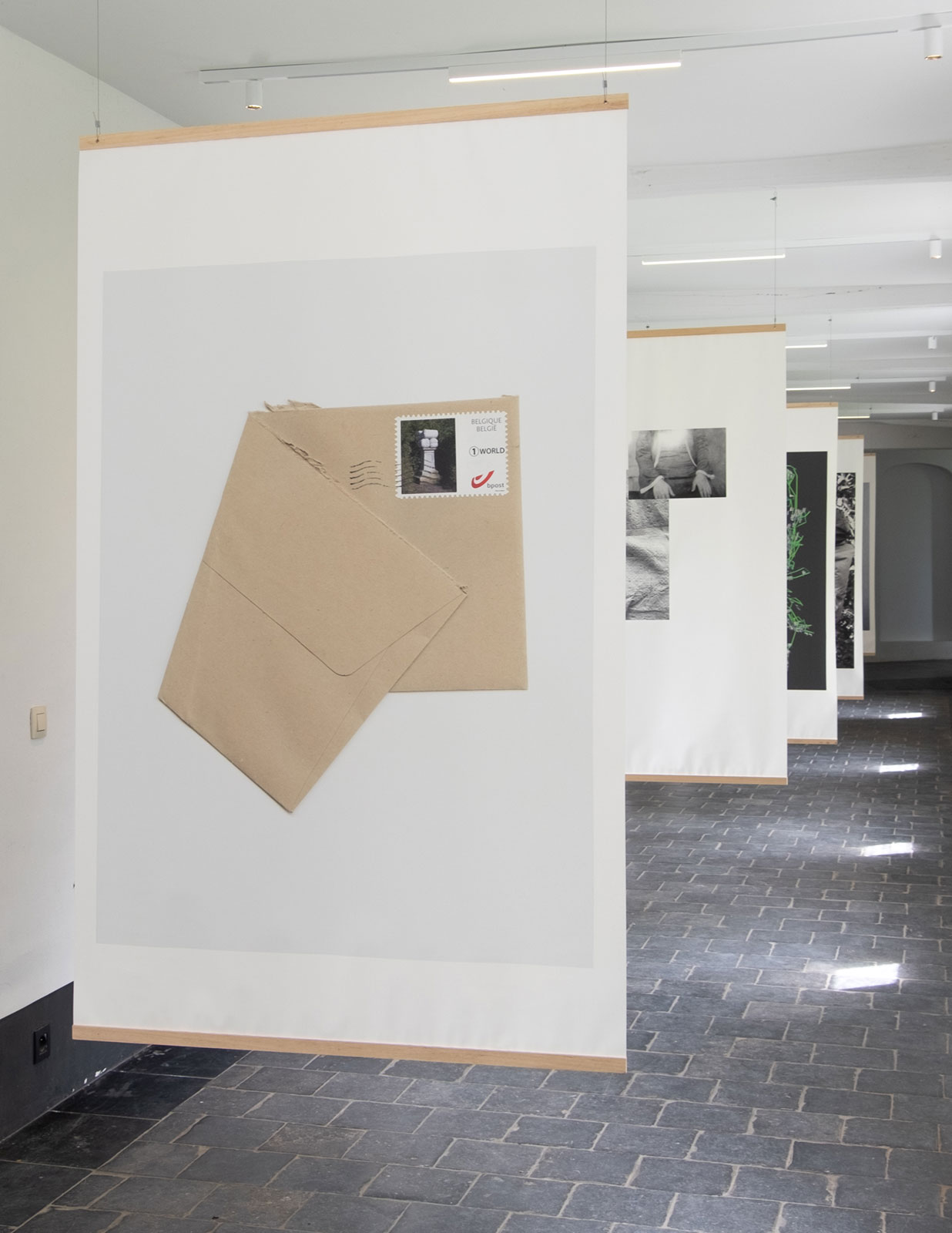
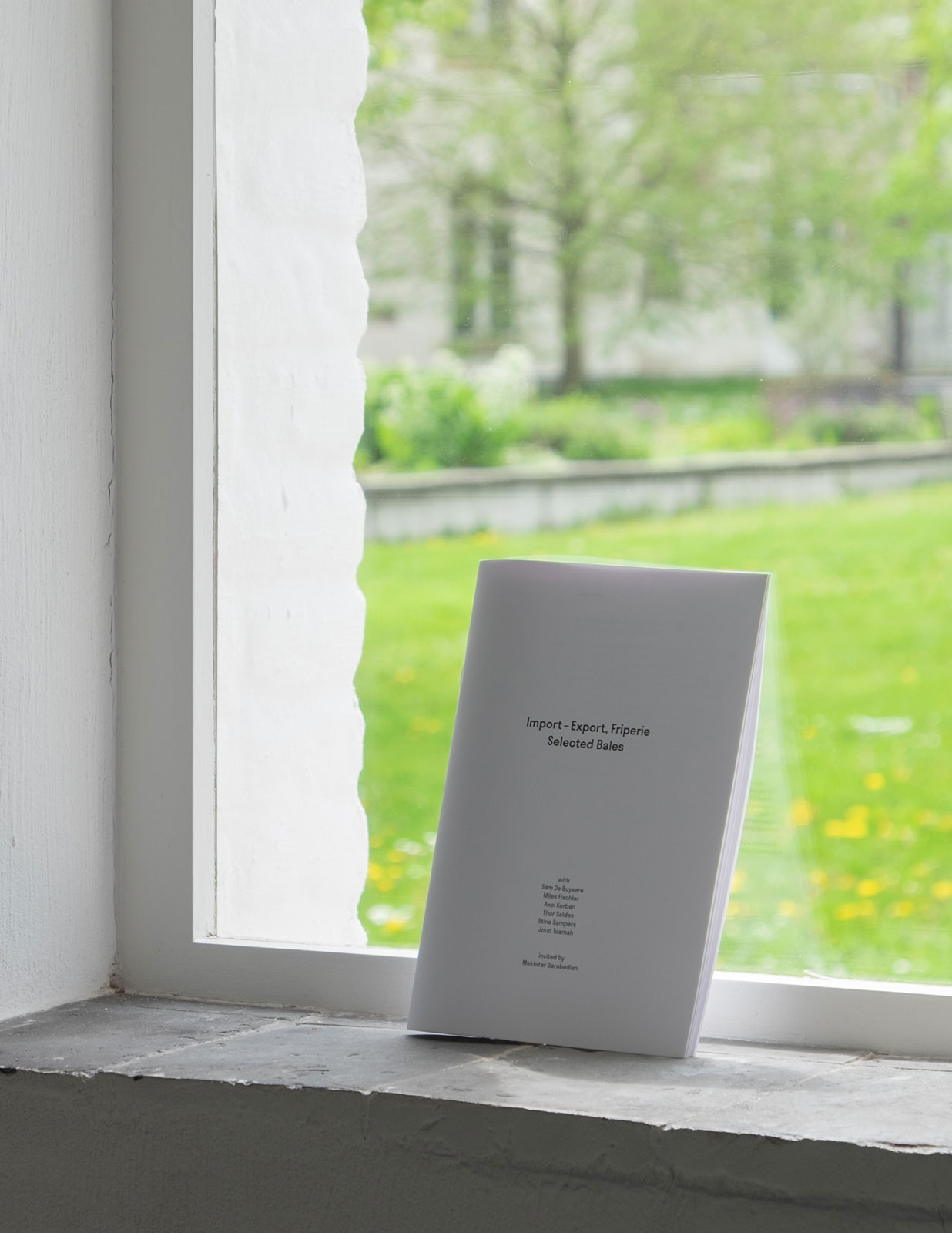
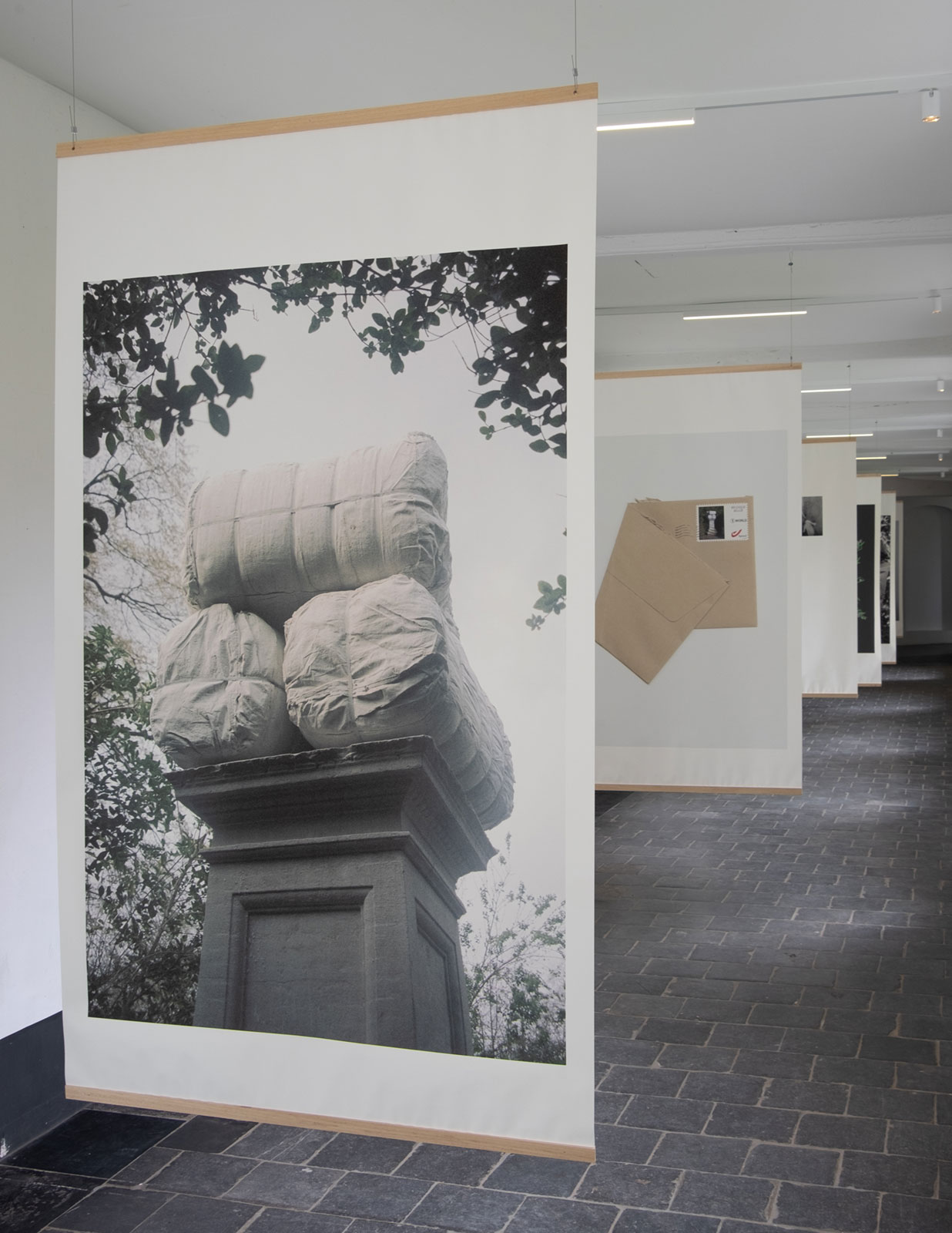
Tentoonstellingsbeelden © Sam De Buysere
Import - Export, Friperie
Selected Bales
DUO BOEKPRESENTATIE
04.05.2023, 19.00-22.00
Sam De Buysere, Miles Fischler, Axel Korban, Thor Salden, Stine Sampers & Joud Toamah
& TENTOONSTELLING
05.05-26.05.2023
Uitgenodigd door
Mekhitar Garabedian
We nodigen u graag uit voor de opening van Import - Export, Friperie: Selected Bales, een tentoonstelling ter gelegenheid van de lancering van het nieuwe boek Import - Export, Friperie van Mekhitar Garabedian.
Het boek is een fotografisch antwoord op de gelijknamige eenjarige, publieke sculptuur van Garabedian, die in 2022-23 in opdracht van Kunst in de Stad / Middelheimmuseum, voor het Public Figure initiatief in het Antwerpse Stadspark, gemaakt werd. Import - Export, Friperie traceert de esthetische, talige en affectieve economieën die het gevolg zijn van een persoonlijk verhaal van ontheemding en samenhorigheid. In lijn met het dialogische karakter van het project vroeg Garabedian voor de tentoonstelling in BOEKS aan kunstenaars Sam De Buysere, Miles Fischler, Axel Korban, Thor Salden, Stine Sampers en Joud Toamah om in gesprek te gaan met zijn sculptuur.
"De zes kunstenaars die ik uitnodigde om te reageren op Import - Export, Friperie, namen één voor één de sculptuur op in hun eigen artistieke wereld, in hun eigen artistieke taal. Door te verschuiven, toe te voegen, weg te halen en het werk te veranderen, creëerden ze nieuwe verhalen en perspectieven.”
— Mekhitar Garabedian
Ter gelegenheid van de tentoonstelling werden hun visuele bijdrages gebundeld in een kleine publicatie die tijdens de opening uitgedeeld wordt. Er zal ook Arak geserveerd worden tijdens de opening, een traditionele drank uit het Midden-Oosten. Van harte welkom!
Met dank aan Liene Aerts (BOEKS), Katrien Vuylsteke Vanfleteren en David Depestel (Onderzoek, KASK & Conservatorium), Arthur Haegeman en Thomas Desmet (Grafisch Ontwerp, KASK & Conservatorium), Samuel Saelemakers (Collectie Kunst in de Stad - Middelheimmuseum, Antwerpen), Sara Weyns (Middelheimmuseum), Sara De Bondt en Antony Hudek (Occasional Papers), Nina Hendrickx, en in het bijzonder Yalla Yalla.


Een selectie van pagina’s uit Import-Export, Friperie, zoals ontworpen door Sara De Bondt
& citaten van Mekhitar Garabedian uit het gesprek tussen hem en Samuel Saelemakers,
zoals gepubliceerd in het boek (in volgorde van verschijning in boek en tekst):
I felt that I had to document this space, my father’s warehouse, now. It was so central and near to us as a family, but I had never photographed it, not properly. Each time I was there, different things would attract me, like the objects or the light coming through the textured glass windows. The selection for this book is made from photographs I took between March and July 2012, the first time I visited the warehouse in this way. Later, I continued going there intermittently.

I took them when the warehouse was still, after working hours. What interested me as subject matter was not the labour that went on there. If that had been the case, I would have gone to other factories. I was interested in this place, the objects, the remains and the products of the activities, the bales of clothing and how they were stacked, as well as the packing, colours, and repetition.

Another way to put it would be that the camera is a kind of archiving machine: every image it produces is a priori an archival object. In this sense, I think of these images from ten years ago as found images. Instead of making new ones, why not work with images that I’ve taken and ‘kept in a box’? Why not reuse them as ‘found’ objects? Because every photograph is a found object in a way.

To come back to the photographs from 2012, I did feel like I was revisiting a partly forgotten self, the one who made the pictures, and rediscovering what he was trying to capture, seeing where it failed and worked. But my current self made the selection for this book, which could only be made now. Choosing the images was a slow process that took several months.

I turn to my family, documenting the parental house – mapping and scanning it – because it’s the place of everyday customs, like cooking, which carry markers of the diasporic experience. This experience is an intimate one. It affects subjectivity and the self. Diaspora means experiencing a disseminated, shattered, divided self.

Placing casts of textile bales does focus the viewers’ attention on timelines of trade, transport, and exchange. In the 1980s, the export market for my father’s company was mainly Syria and Lebanon, because of economic sanctions prohibiting European exports to Syria. Later new export markets opened, such as Benin, Ghana, Ivory Coast, and Pakistan. While in Europe the clothing inside the bales were discards, they were valuable elsewhere, at least until the global spread of cheap, mass-produced new clothing. (…) My father worked beyond retirement age – he was seventy when the company closed. He was someone who worked a lot, and felt the decline of this economic model very closely. It was difficult for him to let go, and to see it come to an end. It must have been hard to admit that this part of his life had concluded. In the words of philosopher Vinciane Despret, this book is a way for me to keep “a space for him”


Import - Export, Friperie
Auteur
Mekhitar Garabedian
Ontwerp
Sara De Bondt
Jaar
2023
Uitgever
Occasional Papers
Drukker
Die Keure
€22 / €18 voor studenten KASK & Conservatorium
Aankoop en inkijk via balie Kunstenbibliotheek of online via Occasional Papers.
De publicatie is een vervolg op de presentatie van de gelijknamige publieke sculptuur Import - Export, Friperie (2022) van Mekhitar Garabedian die te zien was in het Stadspark in Antwerpen van mei 2022 tot april 2023. De sculptuur is de vierde in de Public Figure reeks waarbij kunstenaars uitgenodigd worden door Samuel Saelemakers, curator van de Collectie Kunst in de Stad / Middelheimmuseum, om nieuw werk te maken voor een bestaande, lege sokkel in het park. De werken formuleren telkens een antwoord op de vraag: "Wie of wat zetten we vandaag op een voetstuk?".



Import - Export, Friperie:
Selected Bales
In samenwerking met
Sam De Buysere, Miles Fischler, Axel Korban, Thor Salden, Stine Sampers en Joud Toamah
Uitgenodigd door
Mekhitar Garabedian
Ontwerp
Sara De Bondt
Jaar
2023
Uitgever
Occasional Papers
Drukker
Zwart op Wit
Eén gratis exemplaar per persoon verkrijgbaar aan de balie van de Kunstenbibliotheek of via de kunstenaar, zolang de voorraad strekt.
Deze publicatie functioneert als losse insert bij het gelijknamige boek Import - Export, Friperie en kwam tot stand naar aanleiding van de BOEKS tentoonstelling.








Tentoonstellingsbeelden © Sam De Buysere